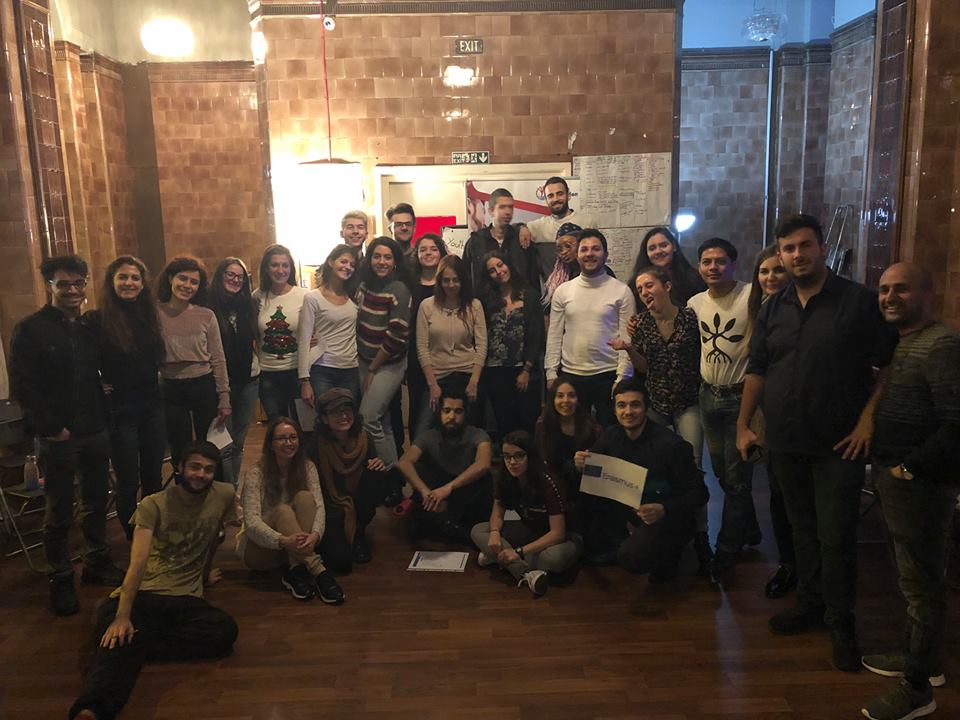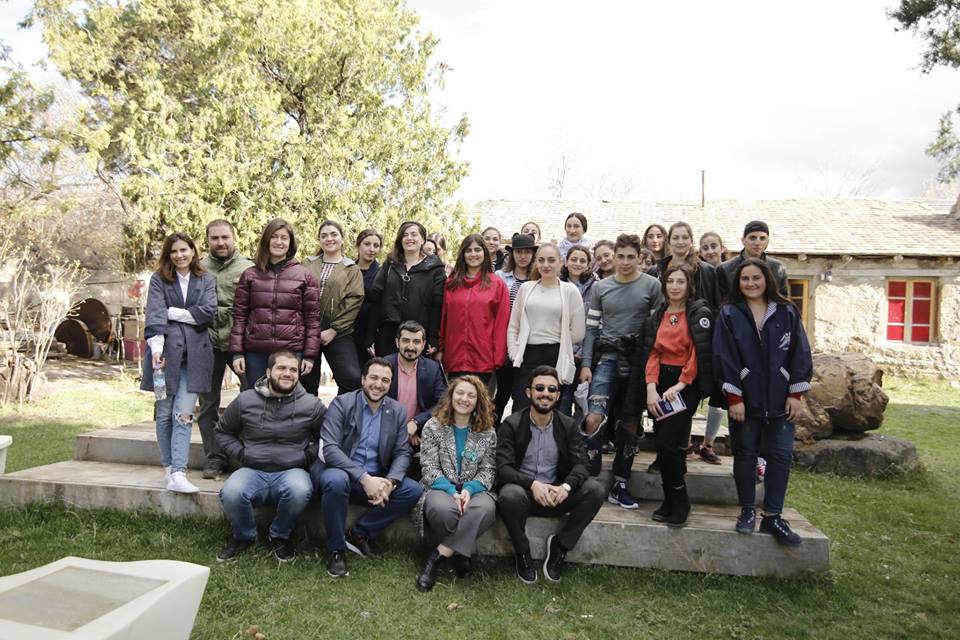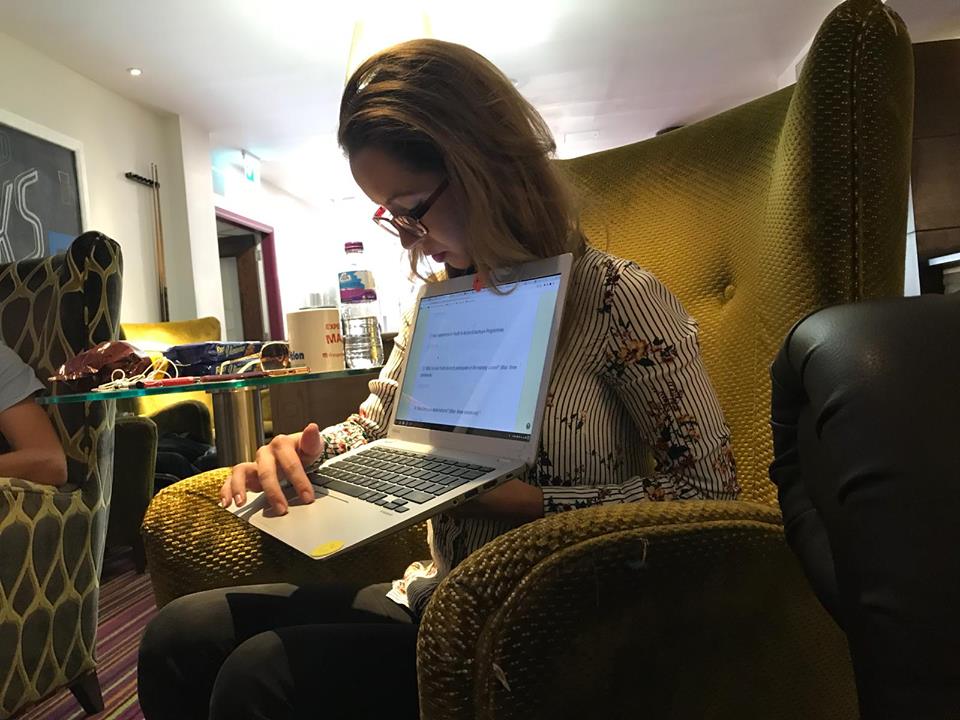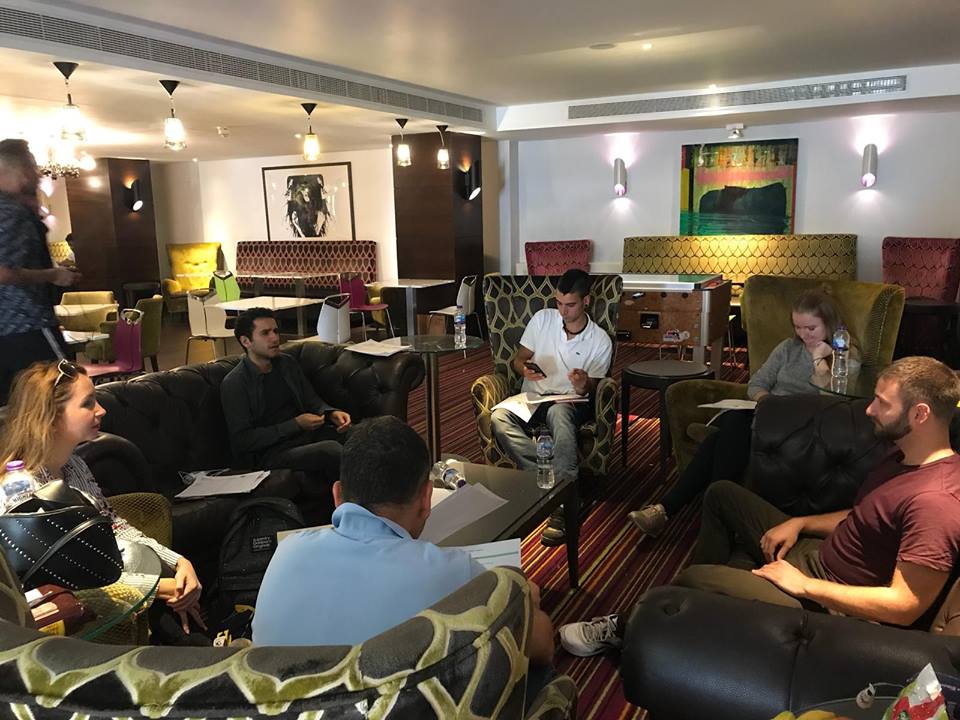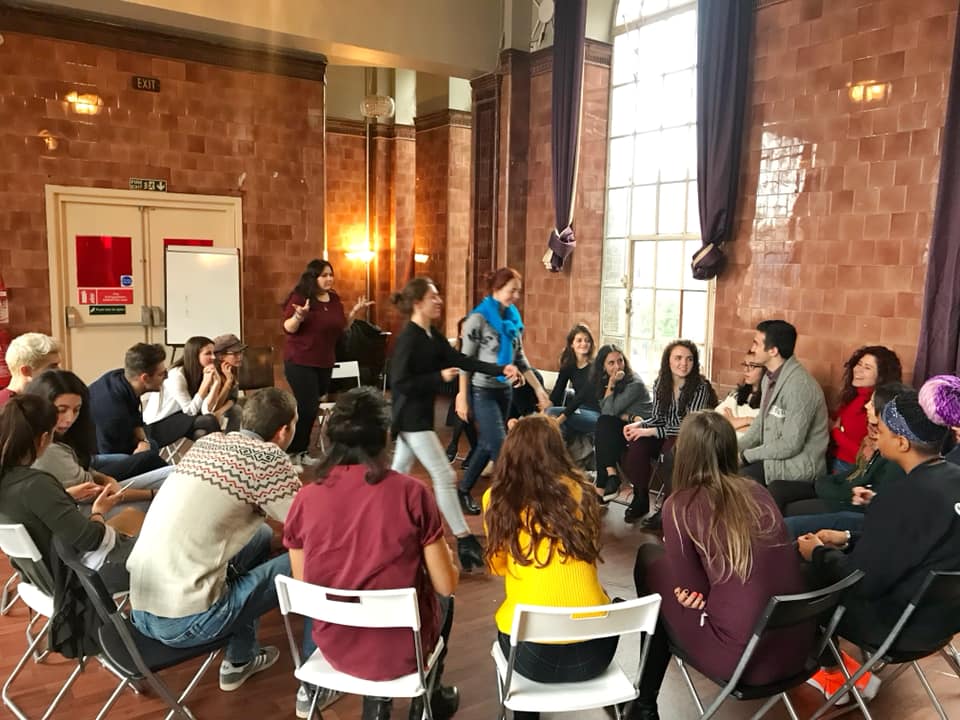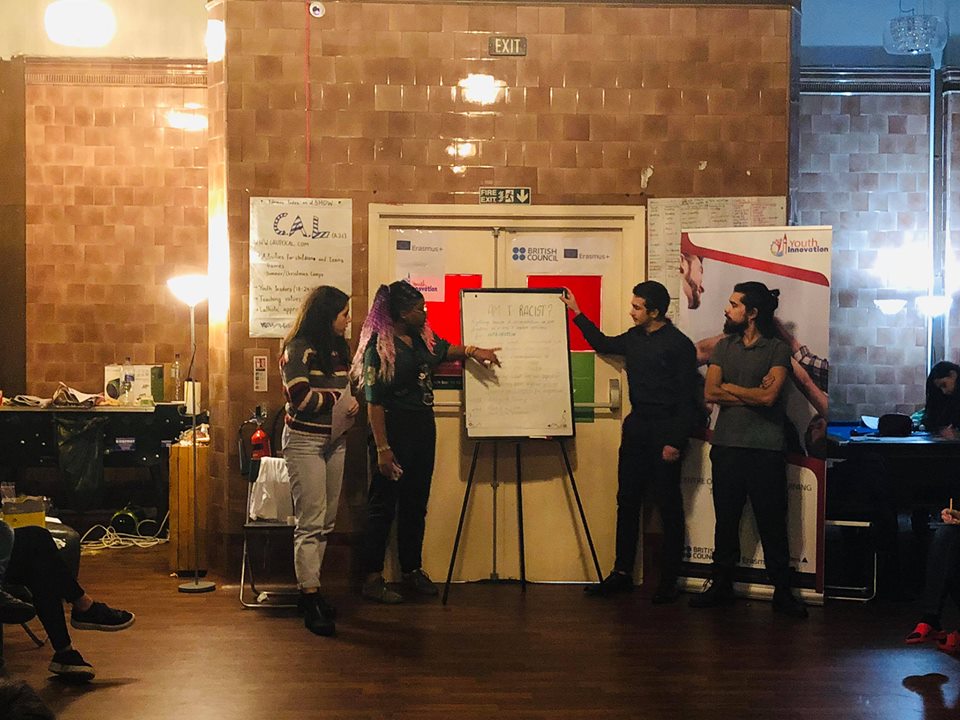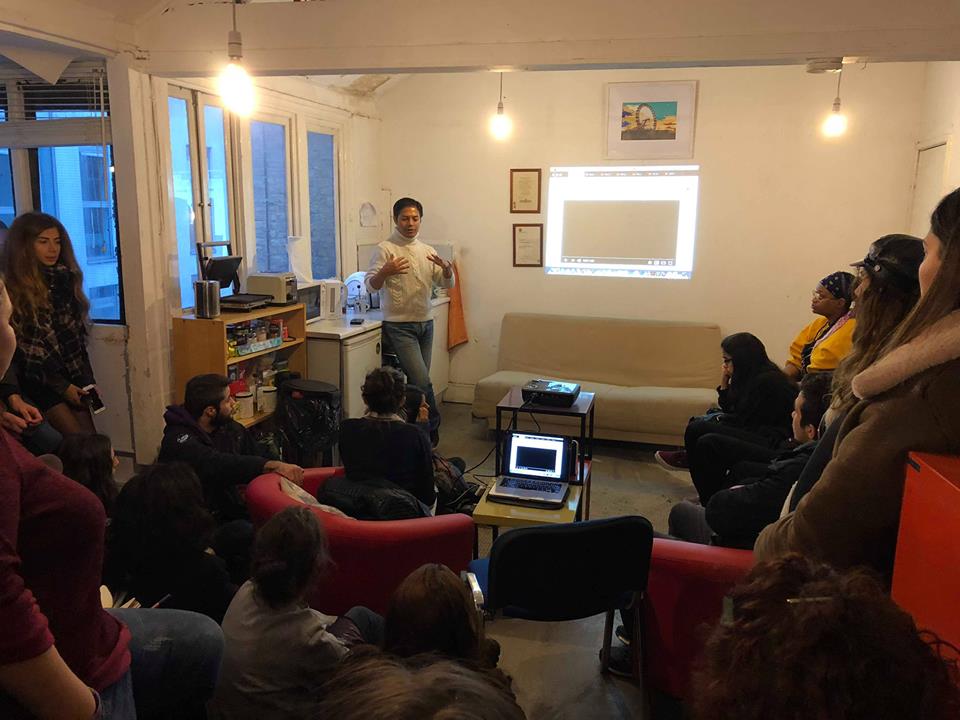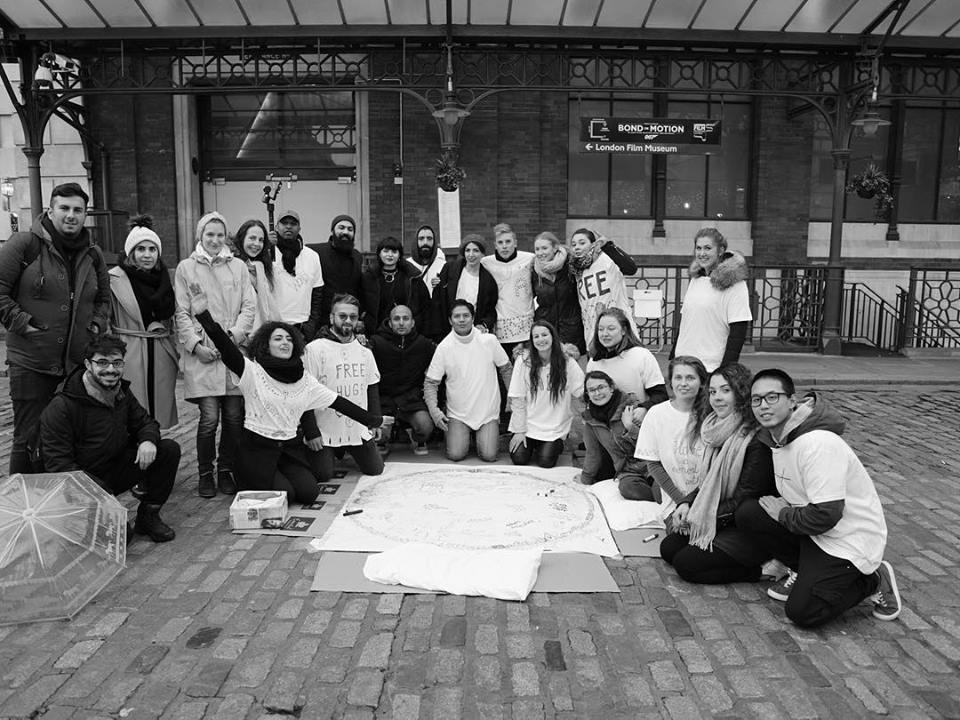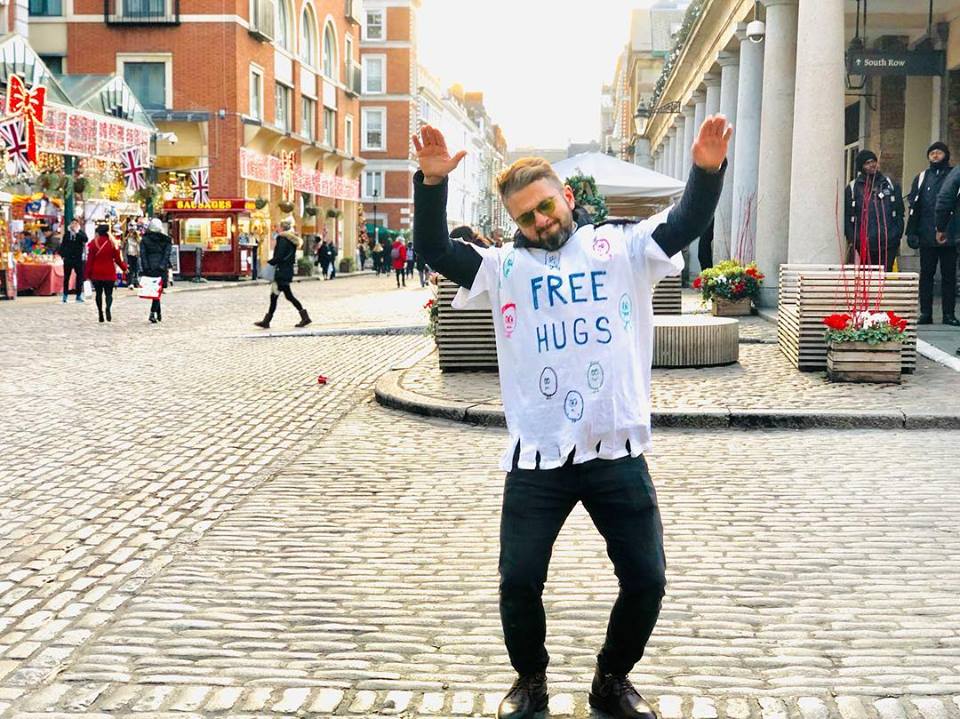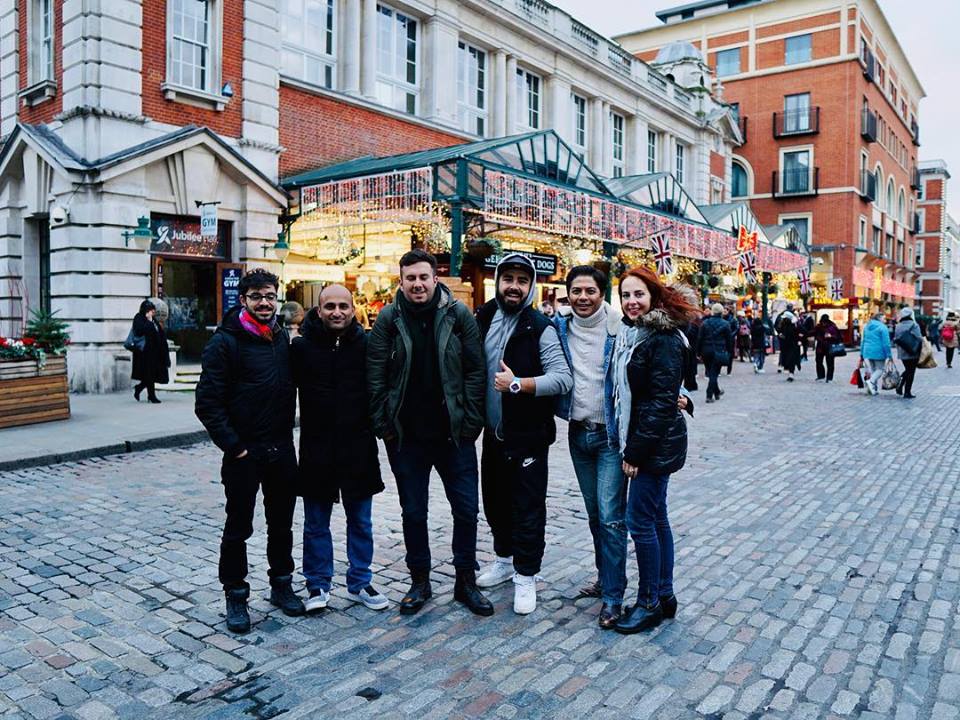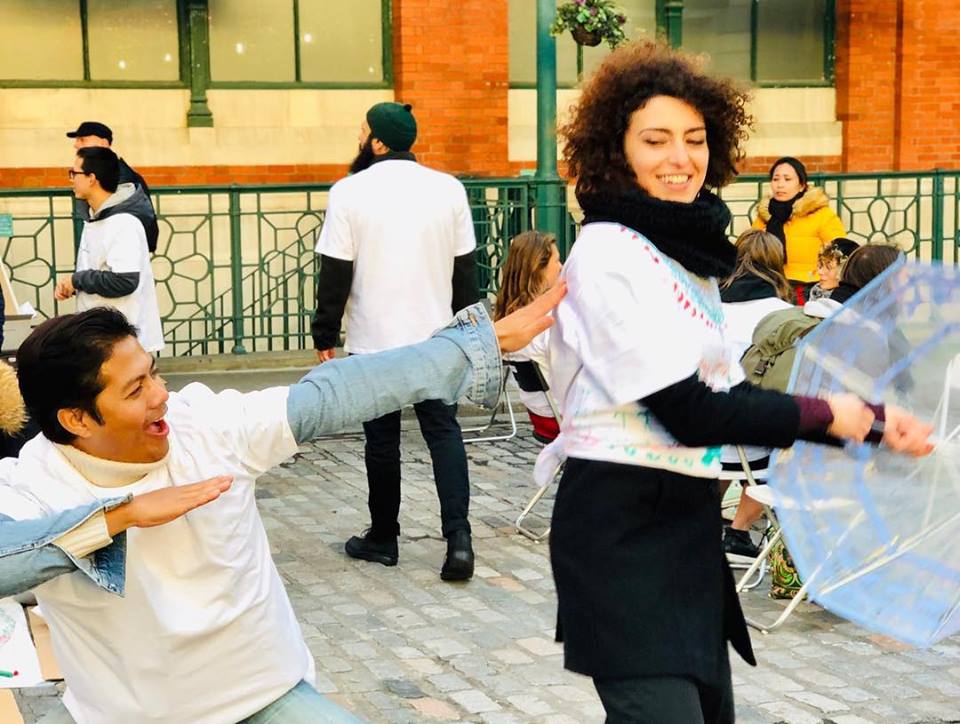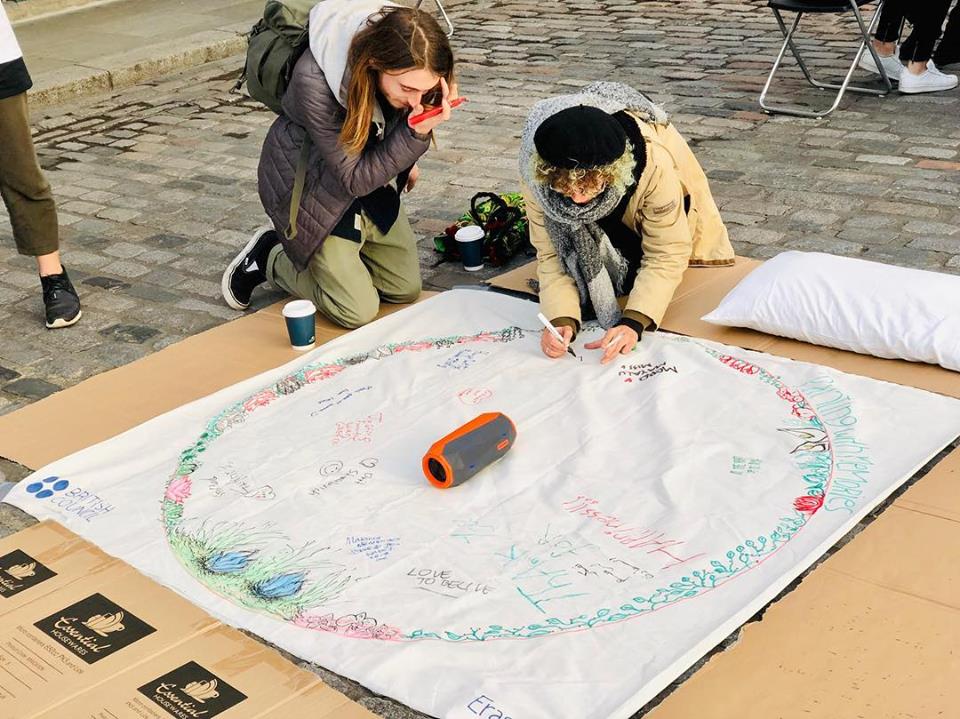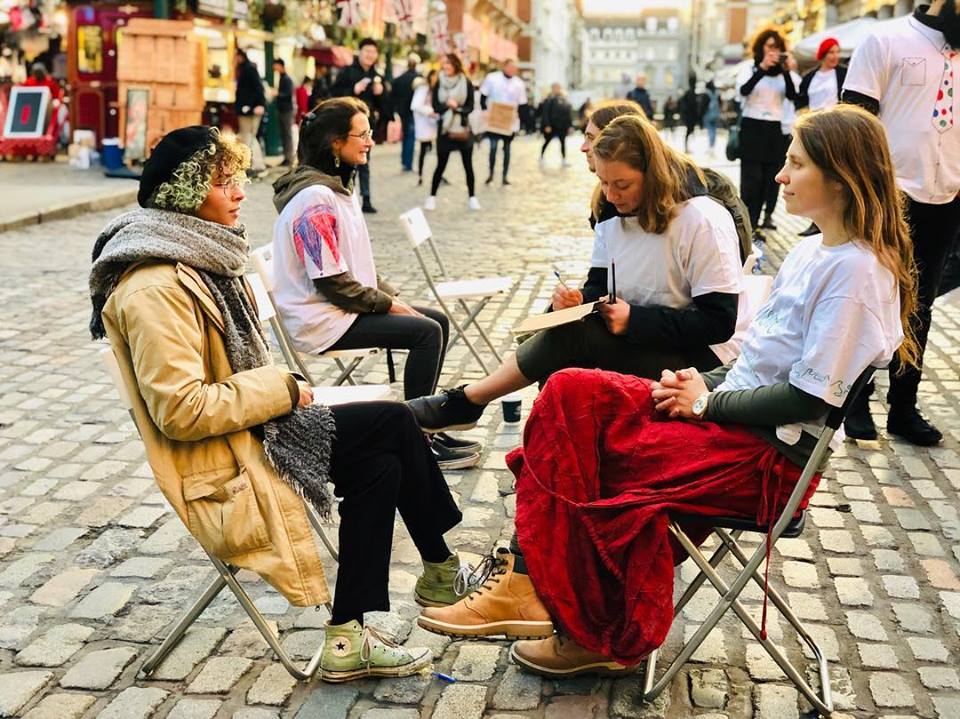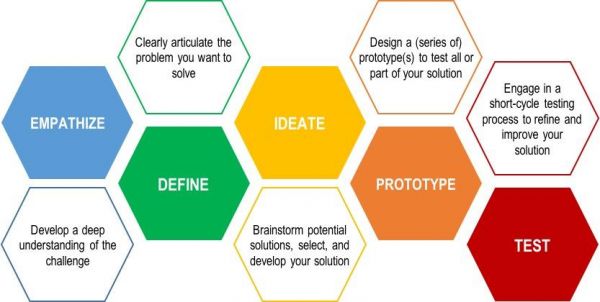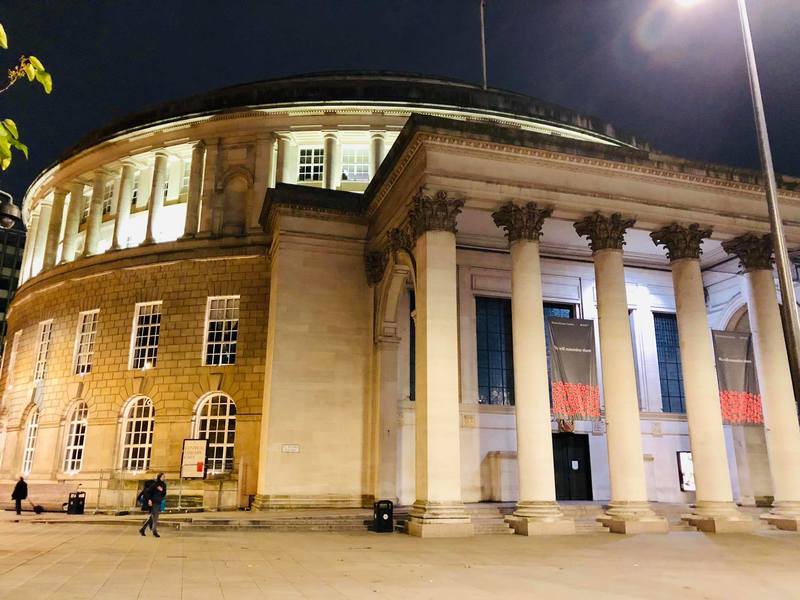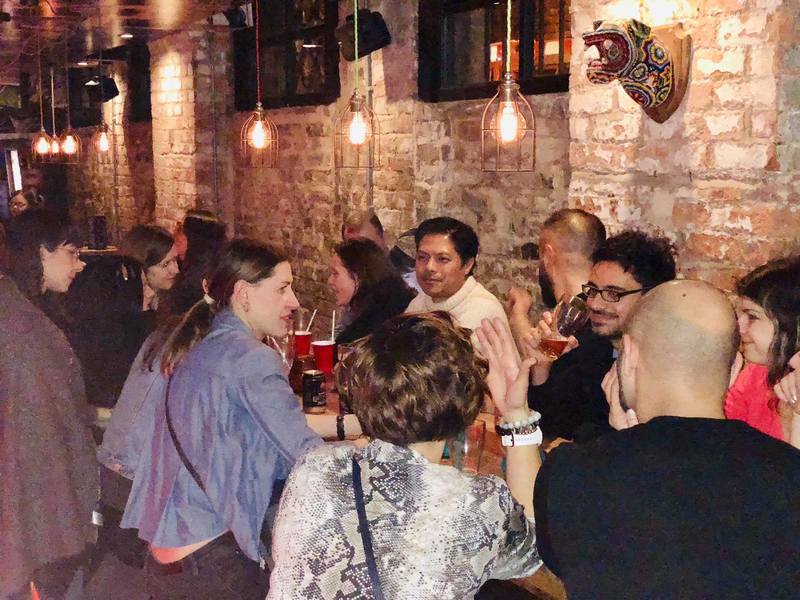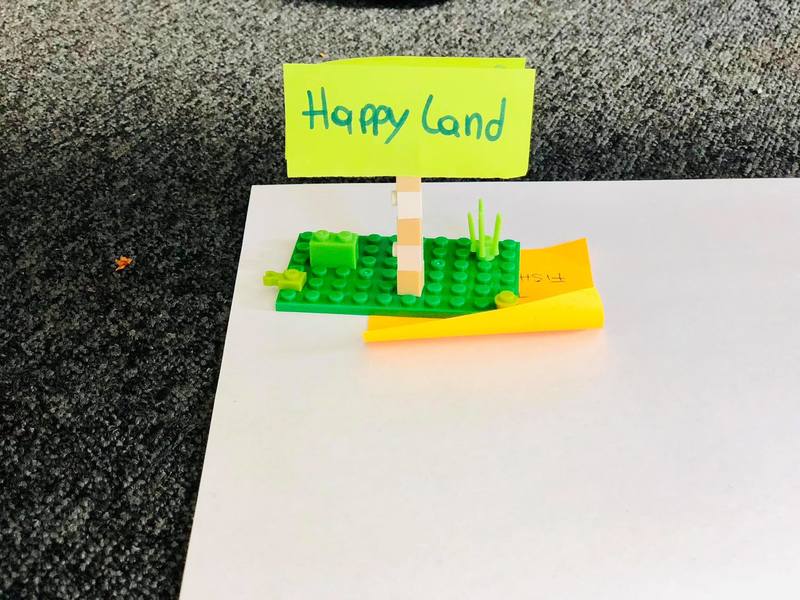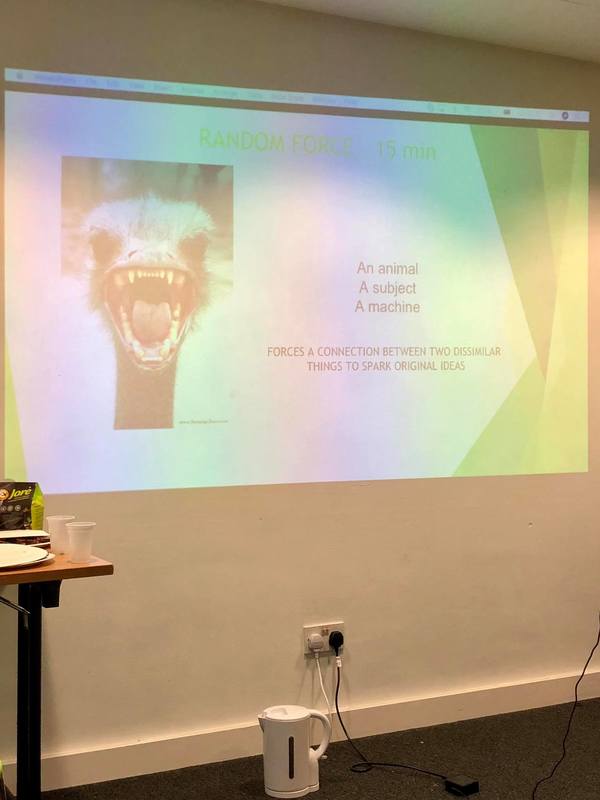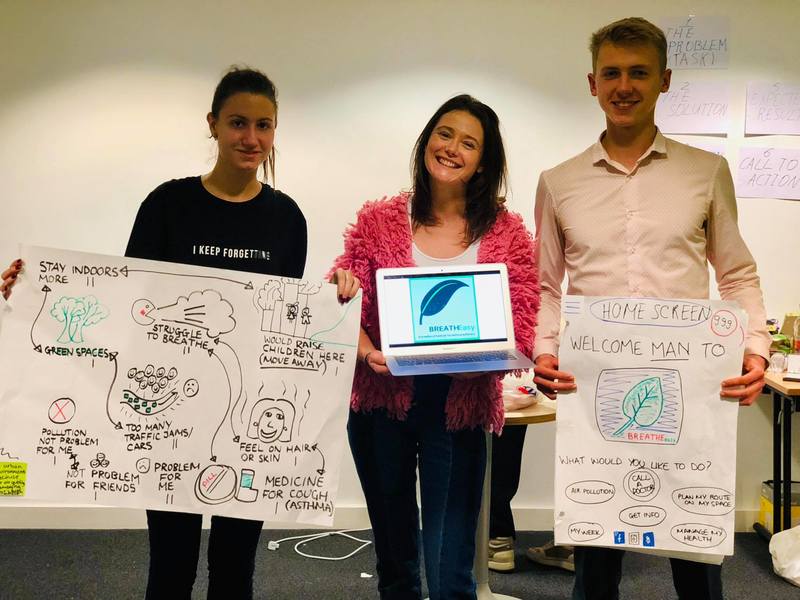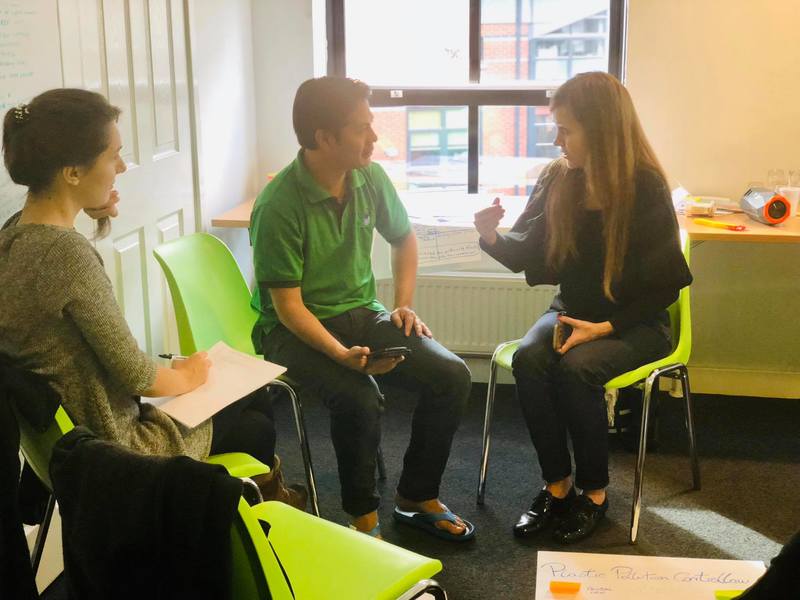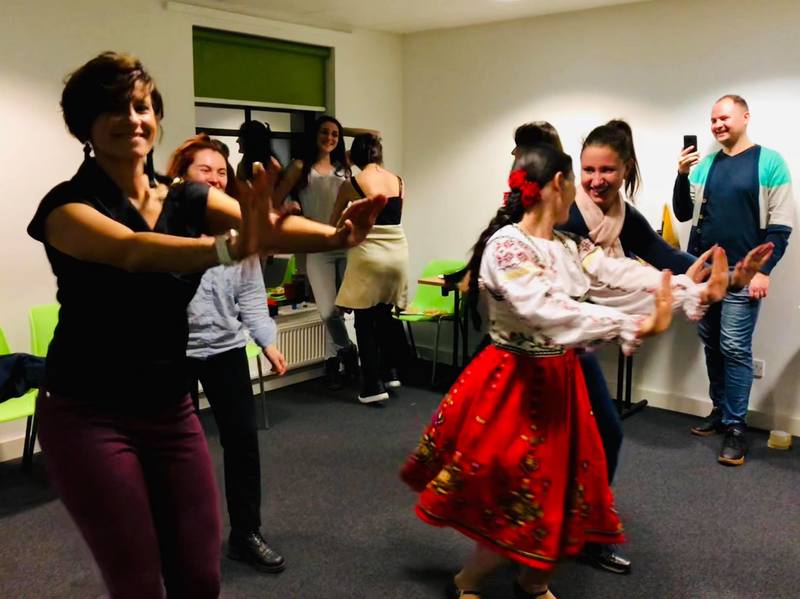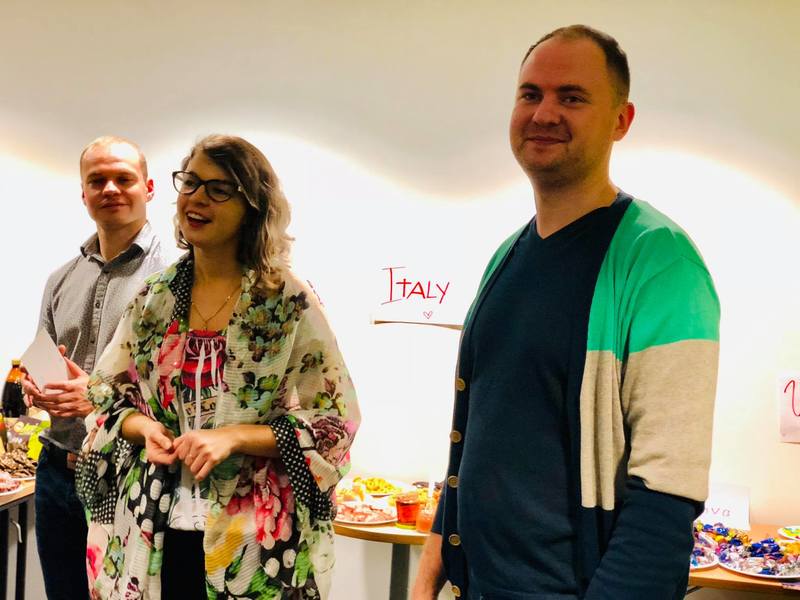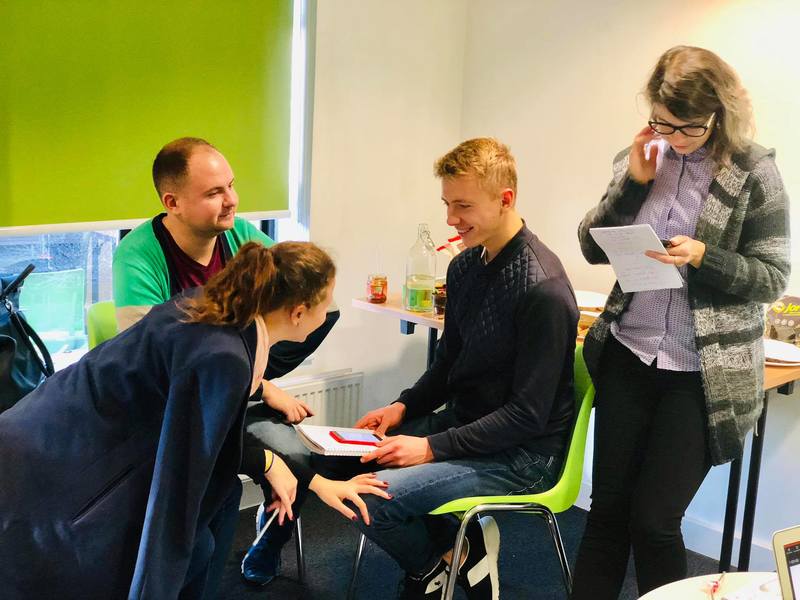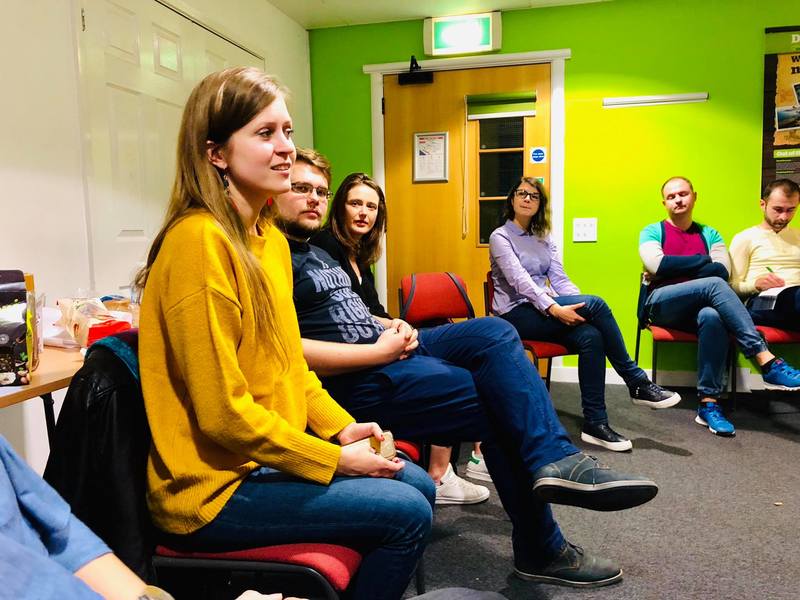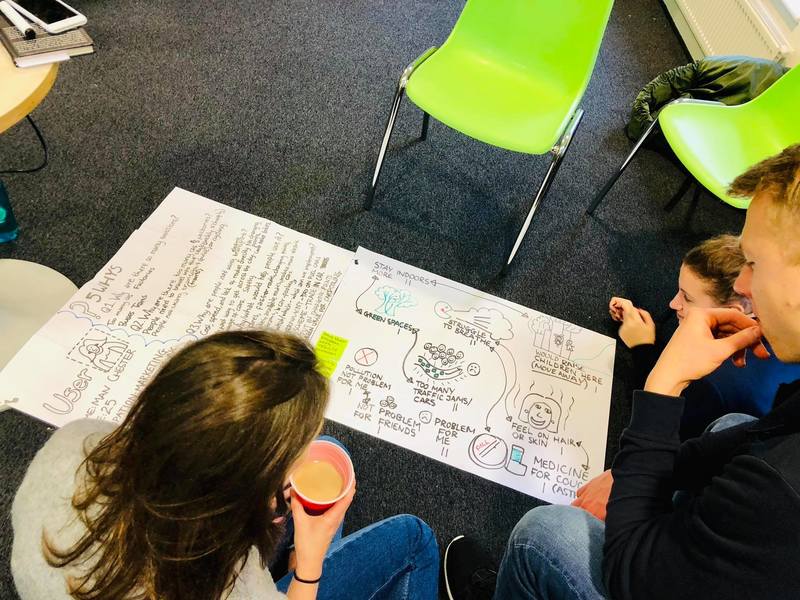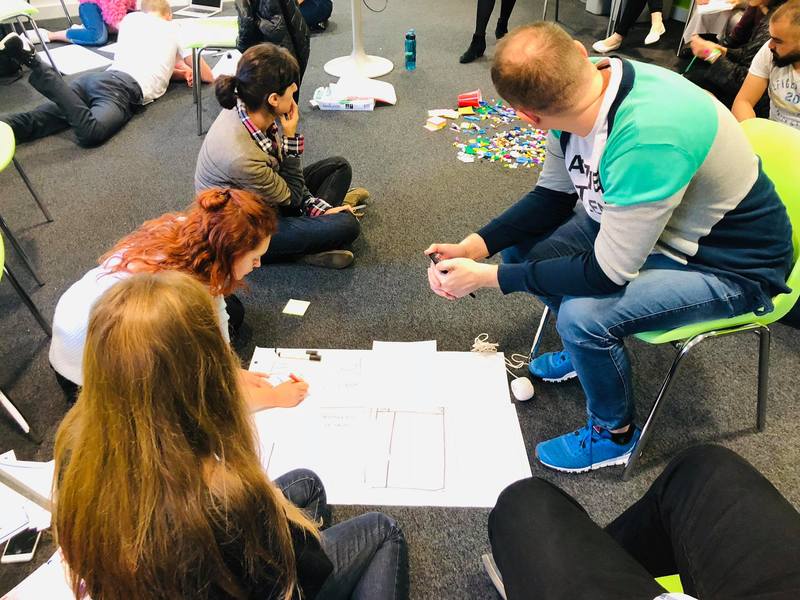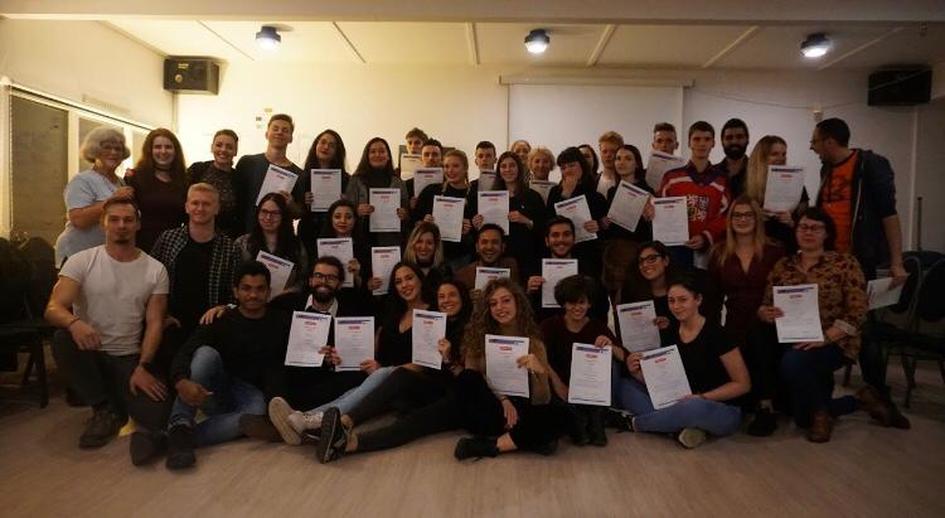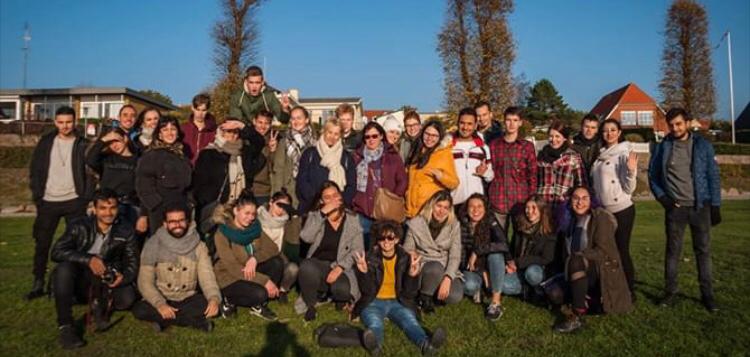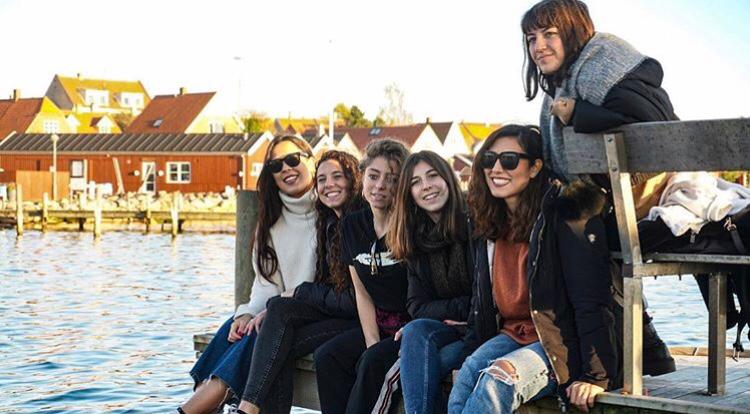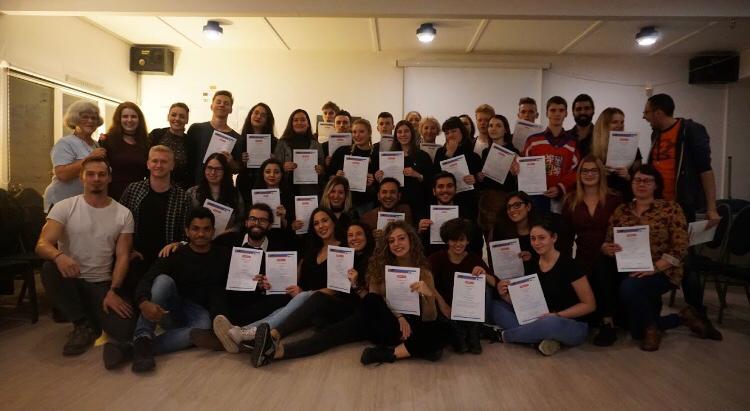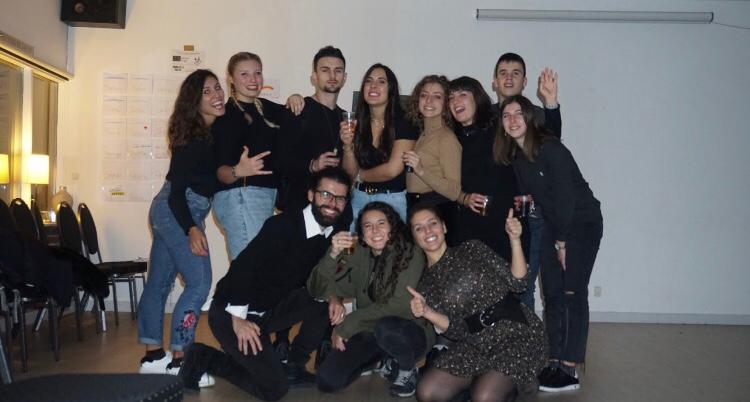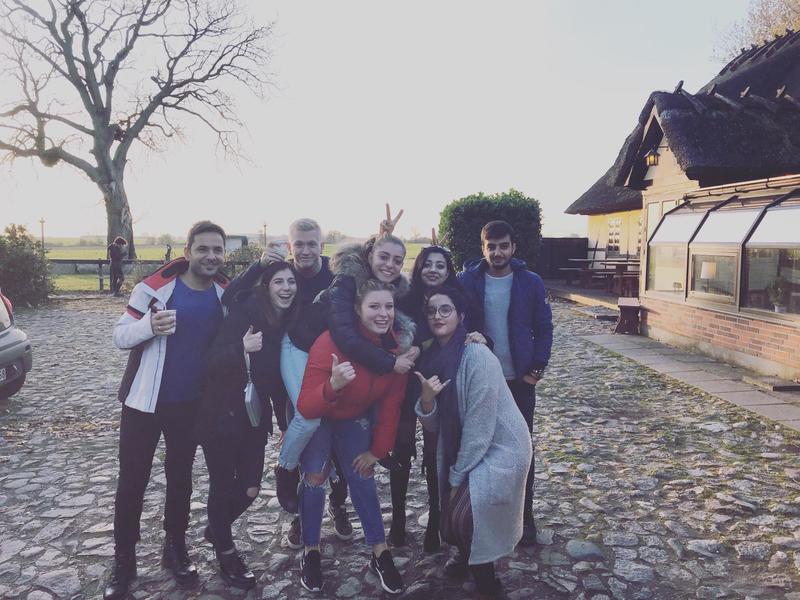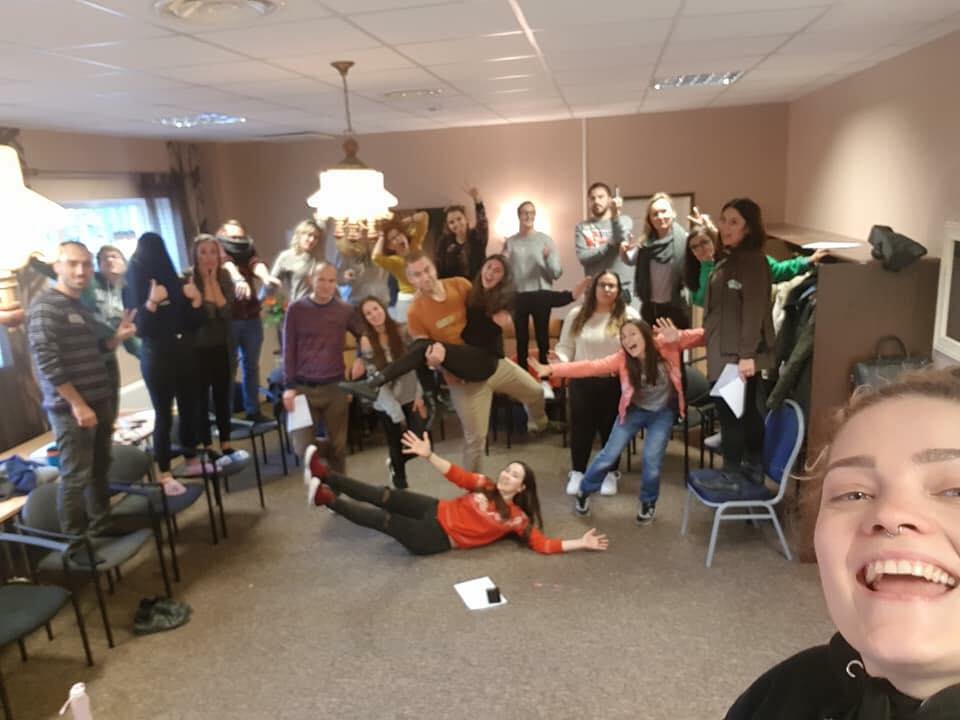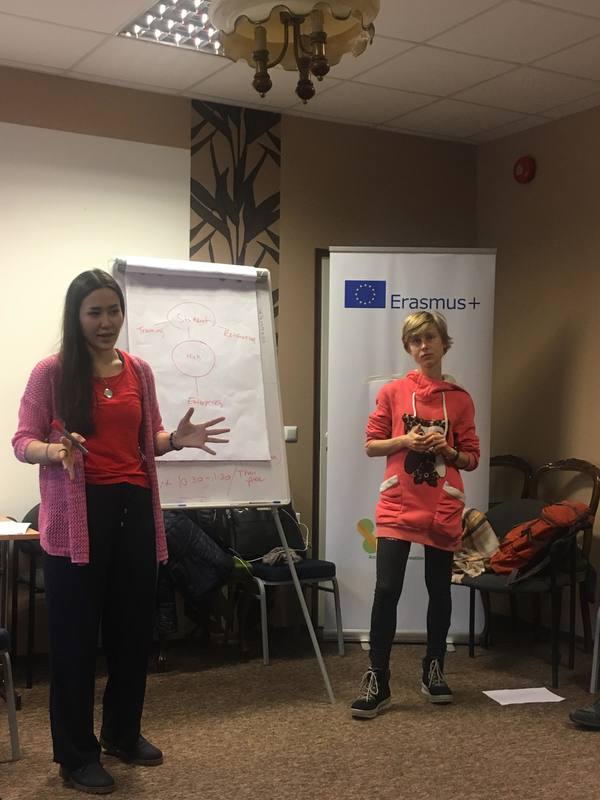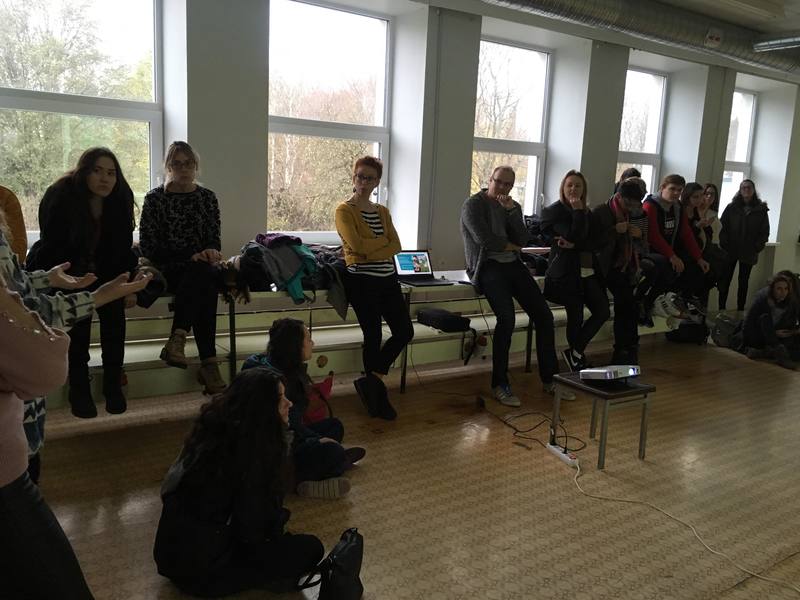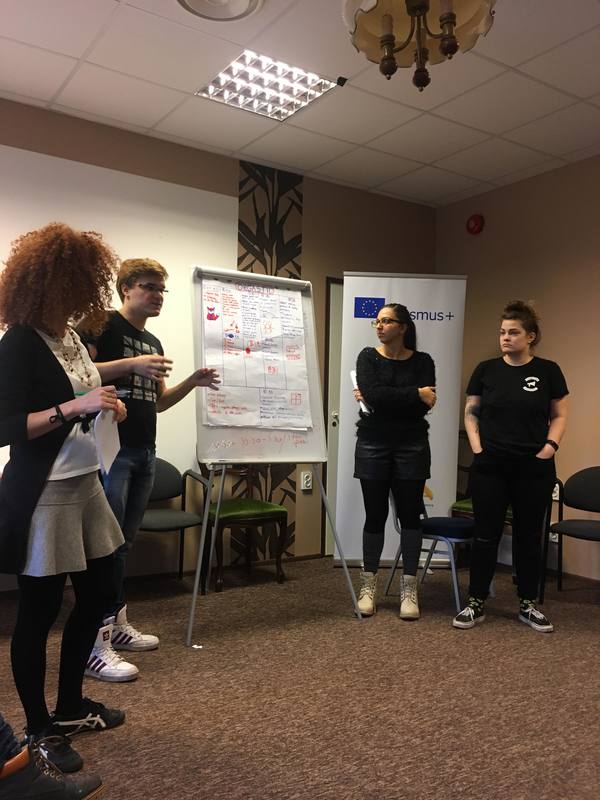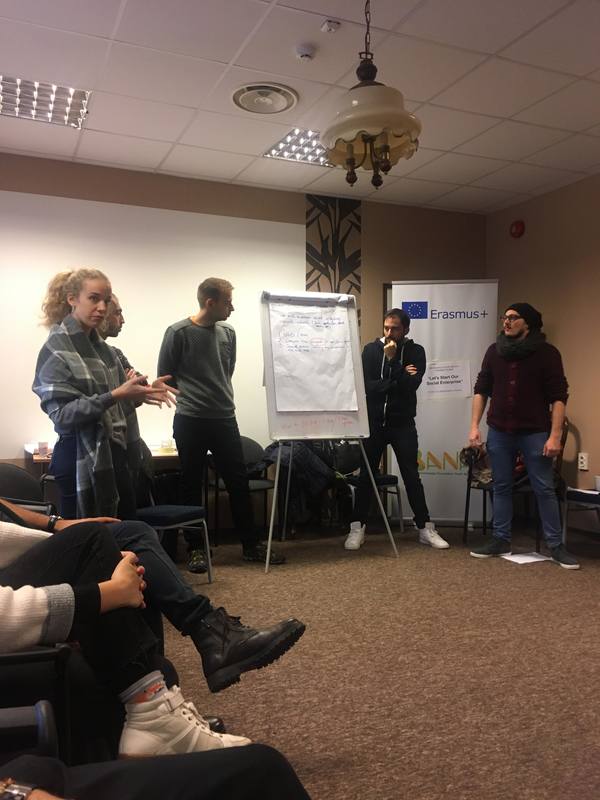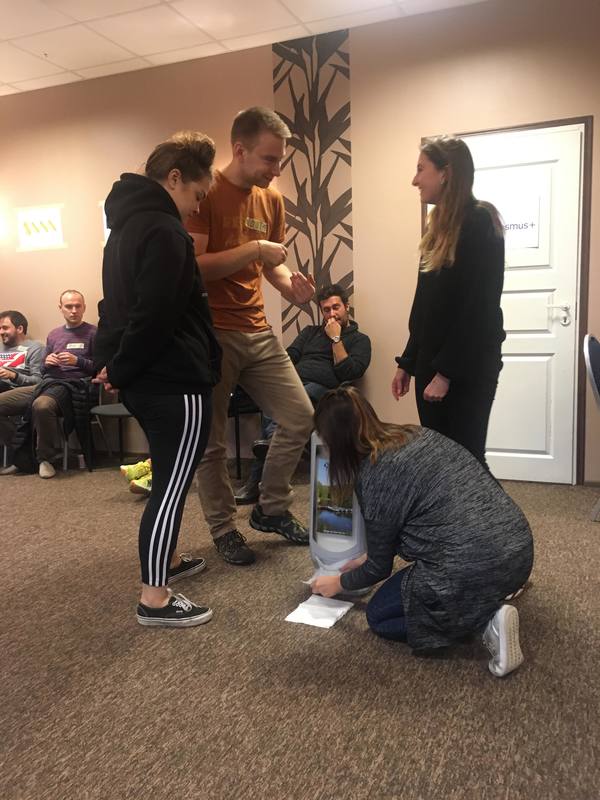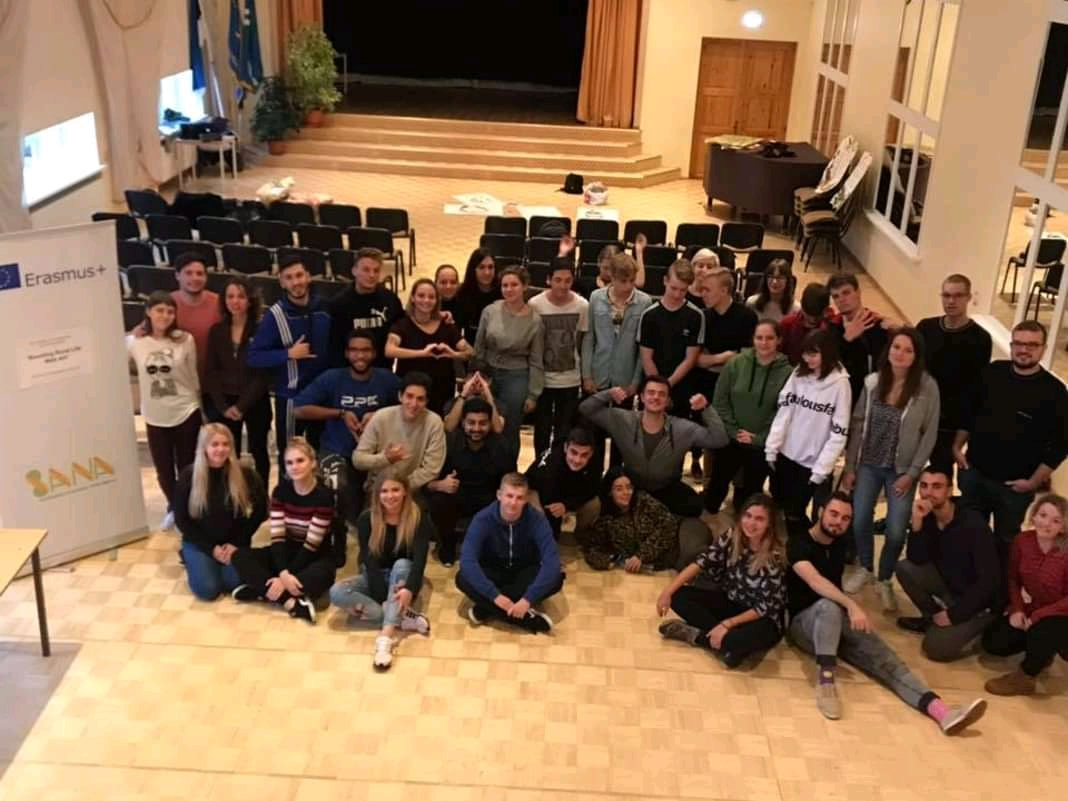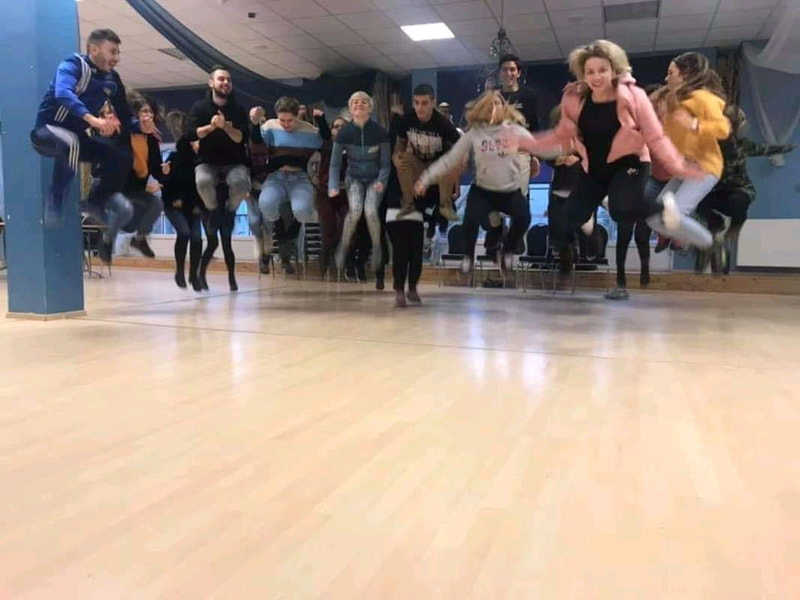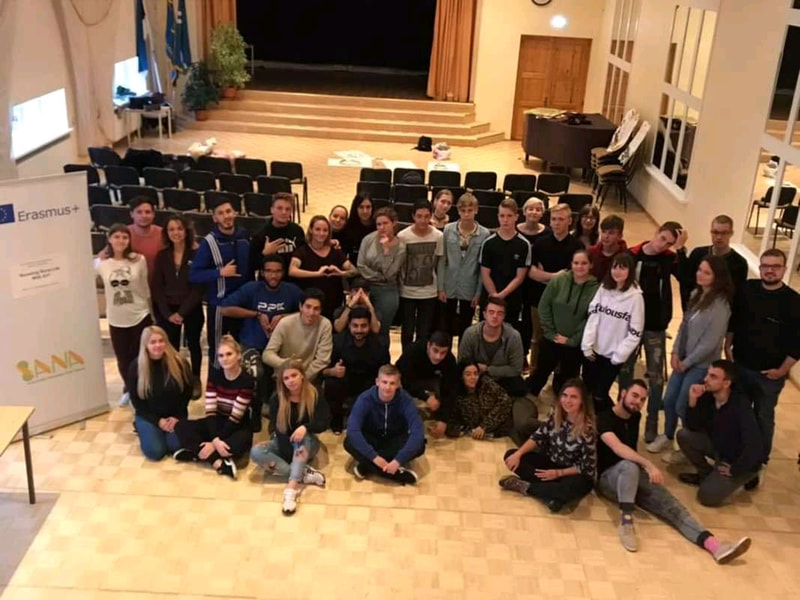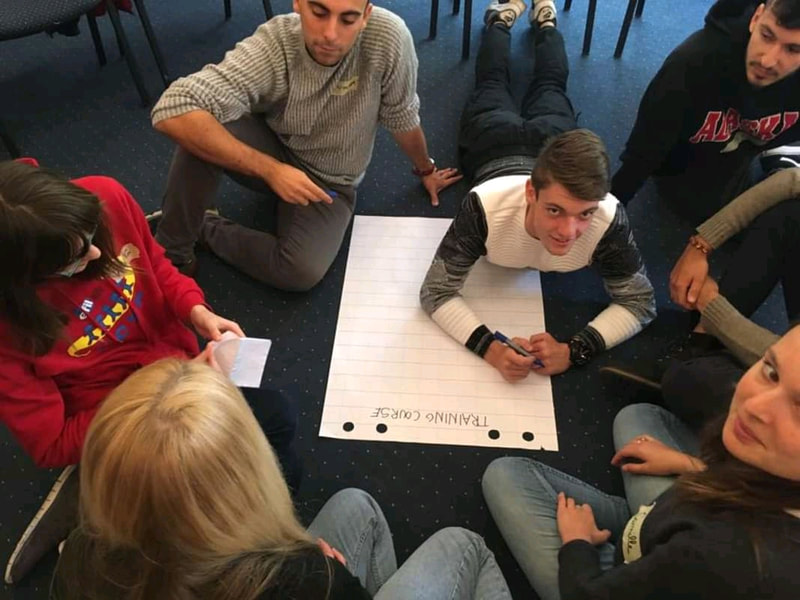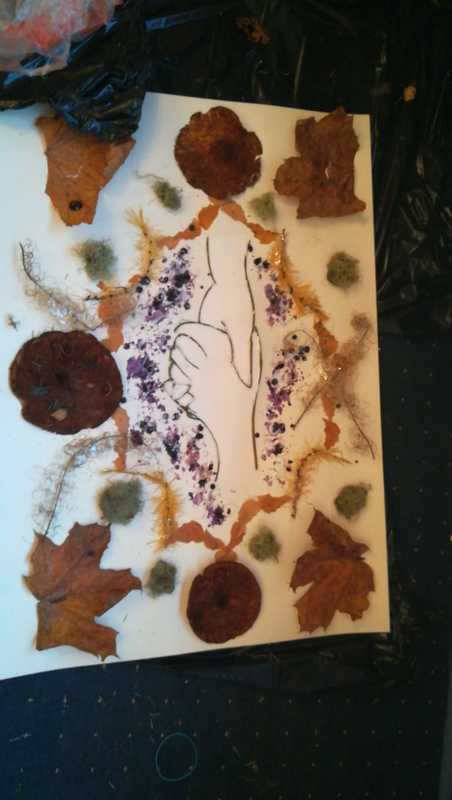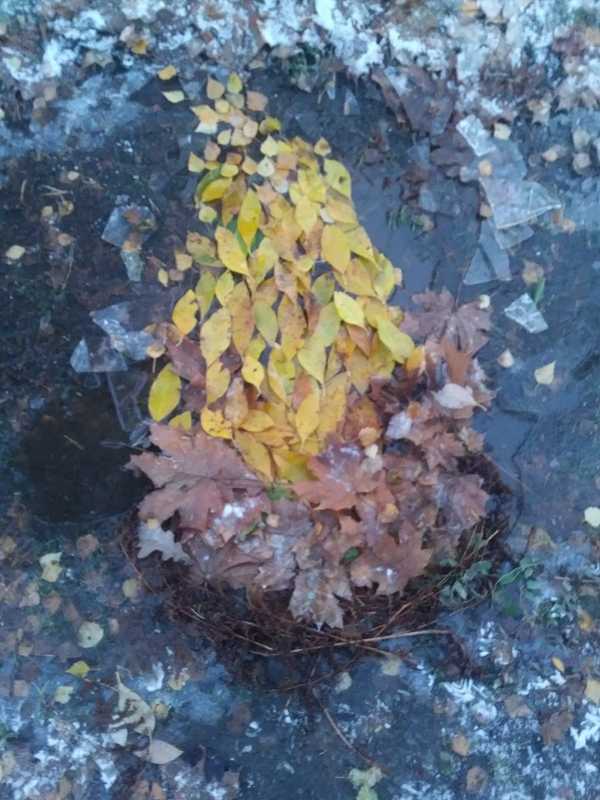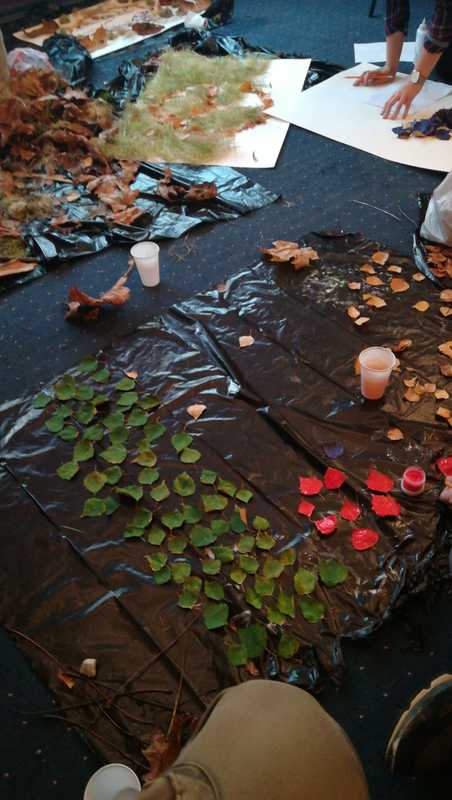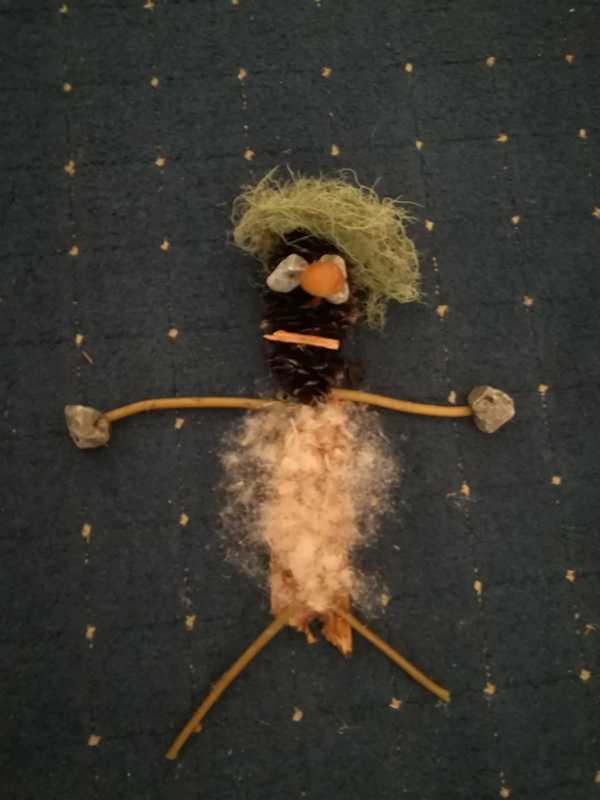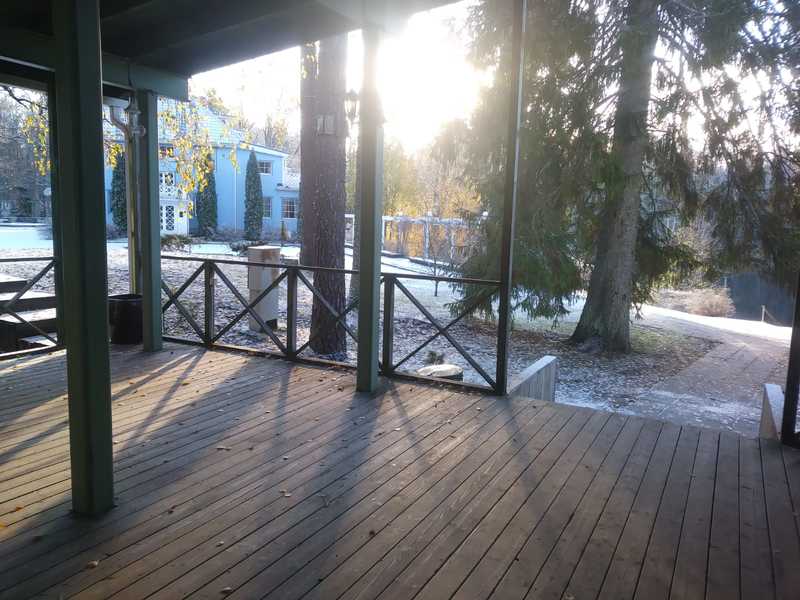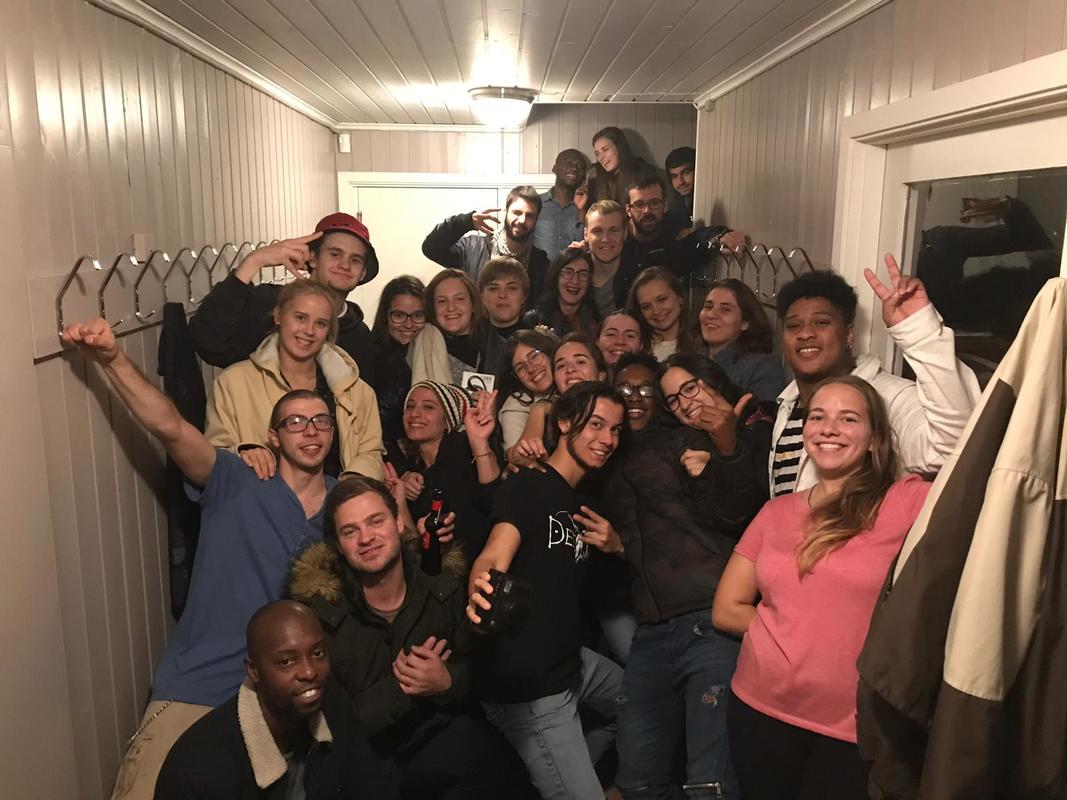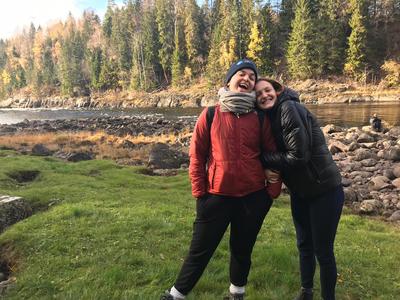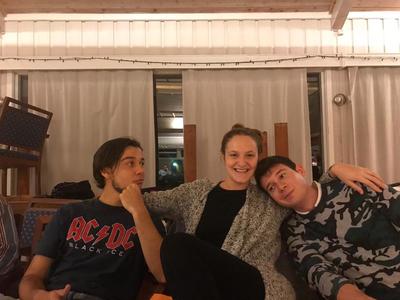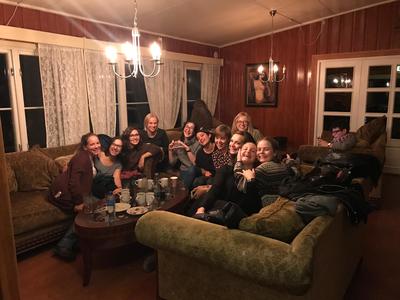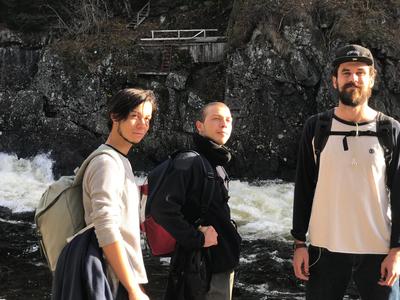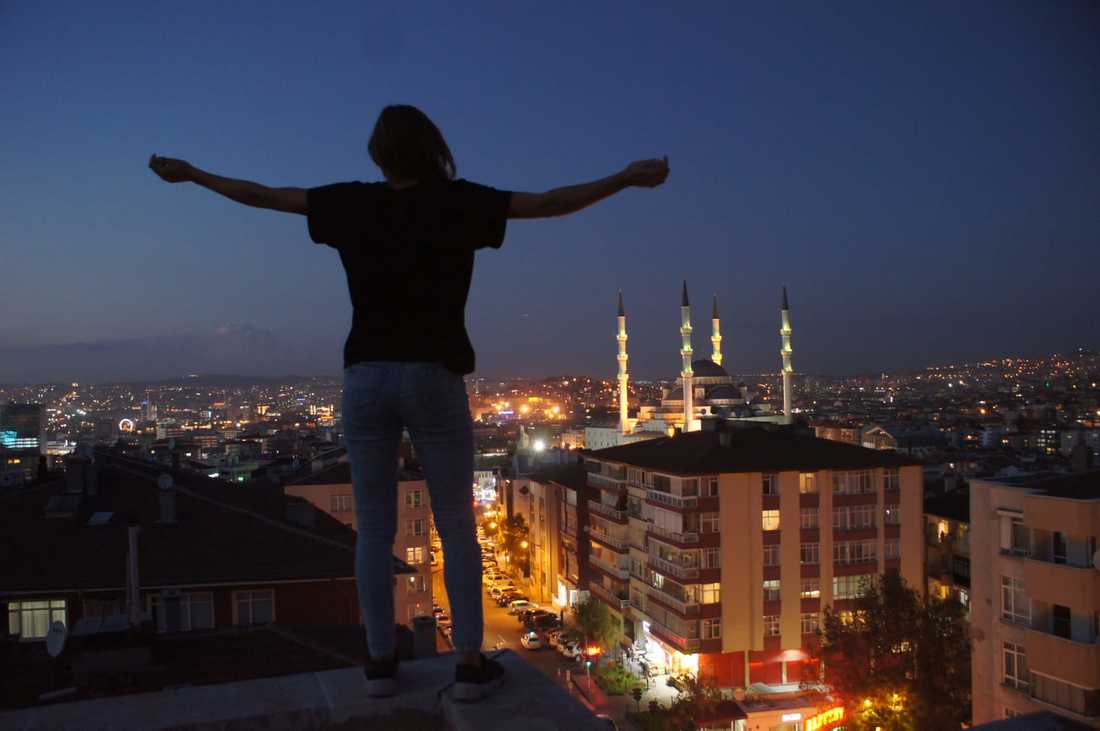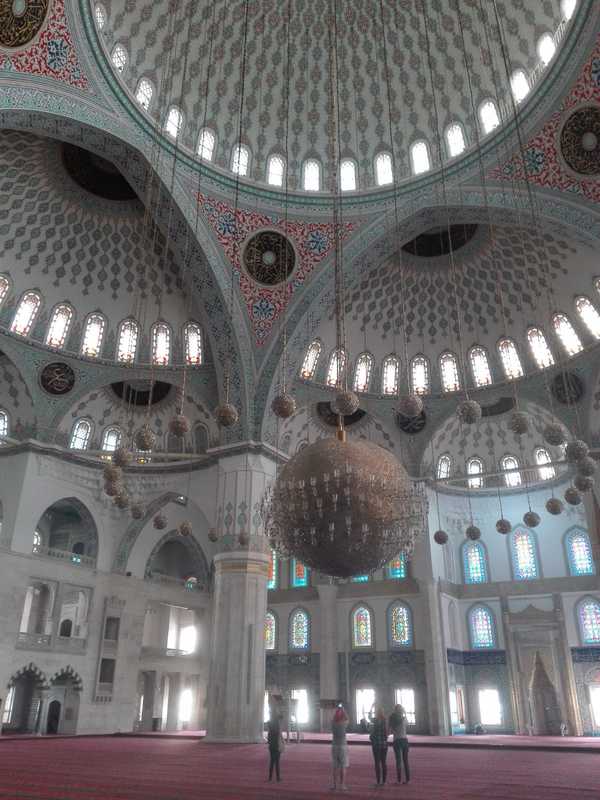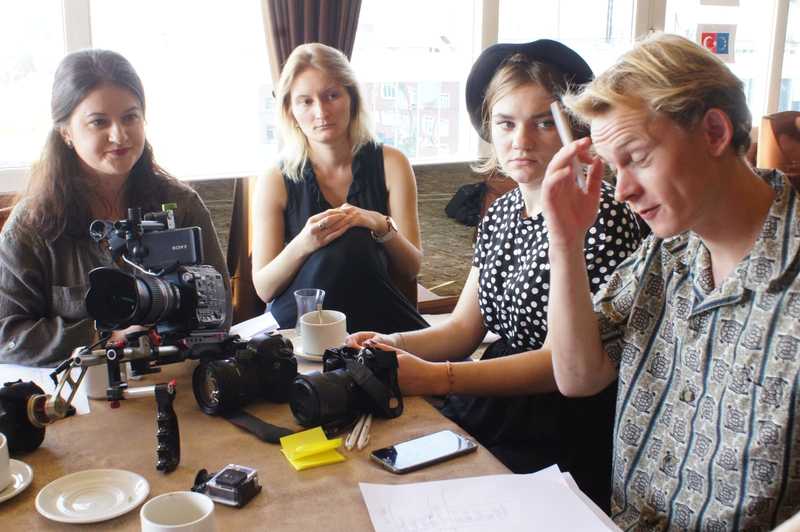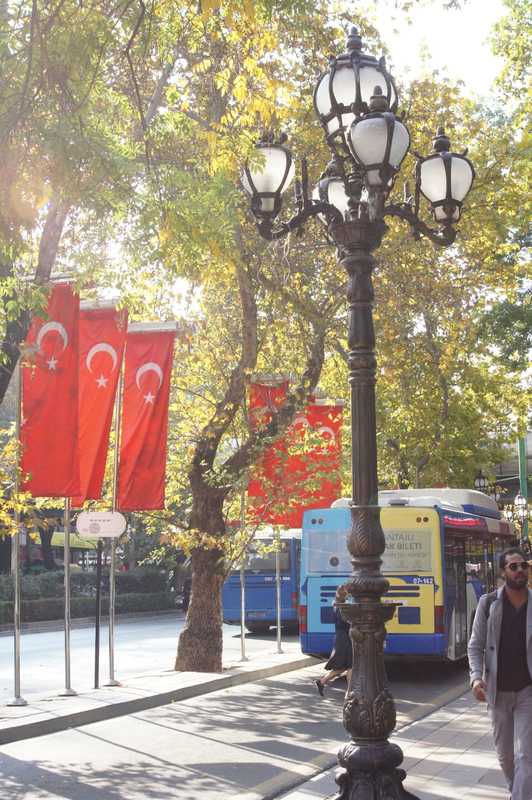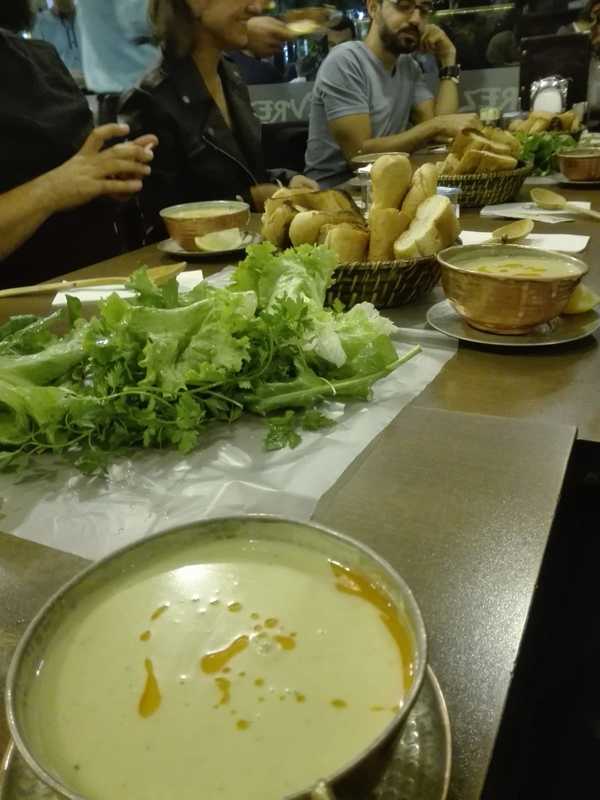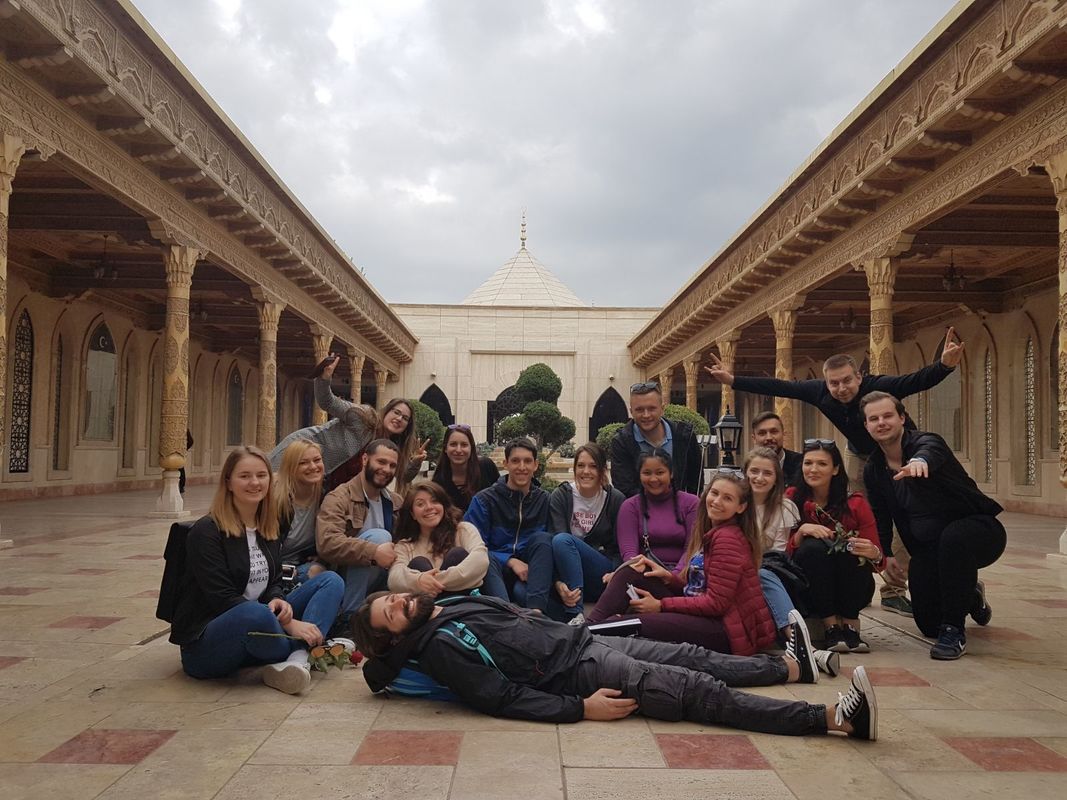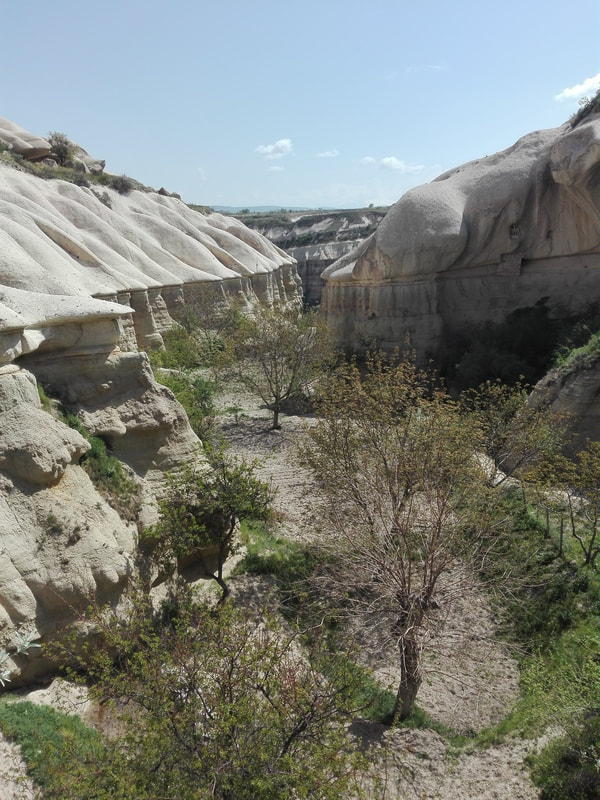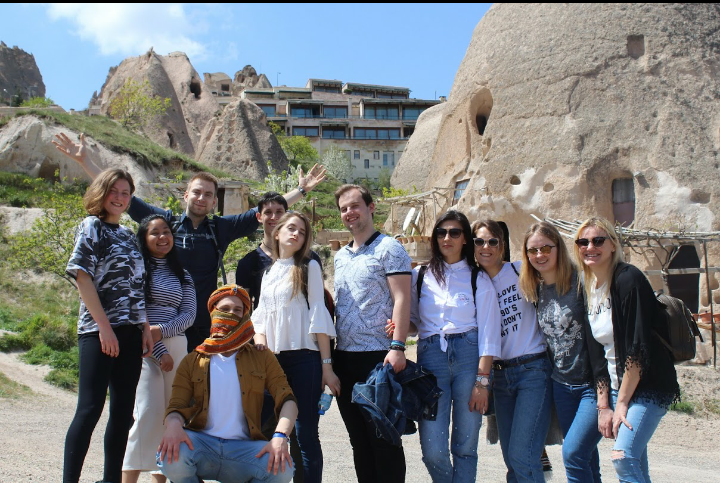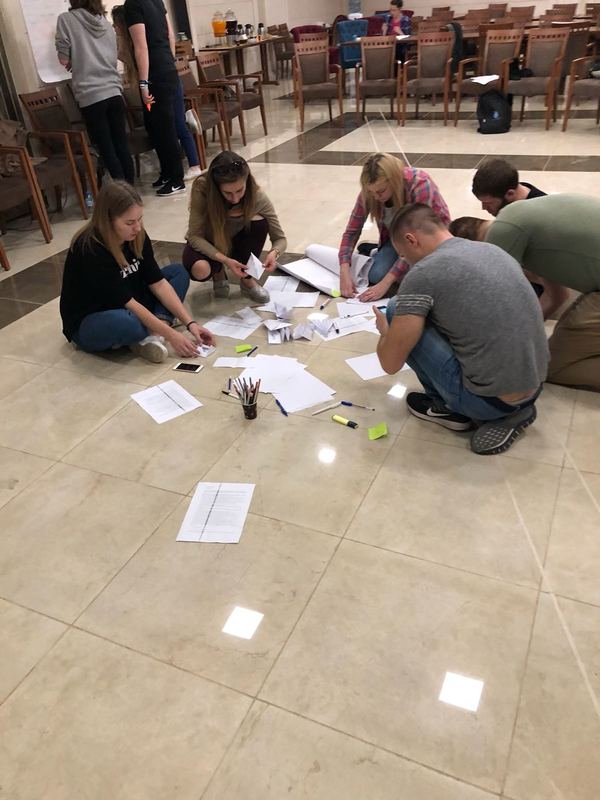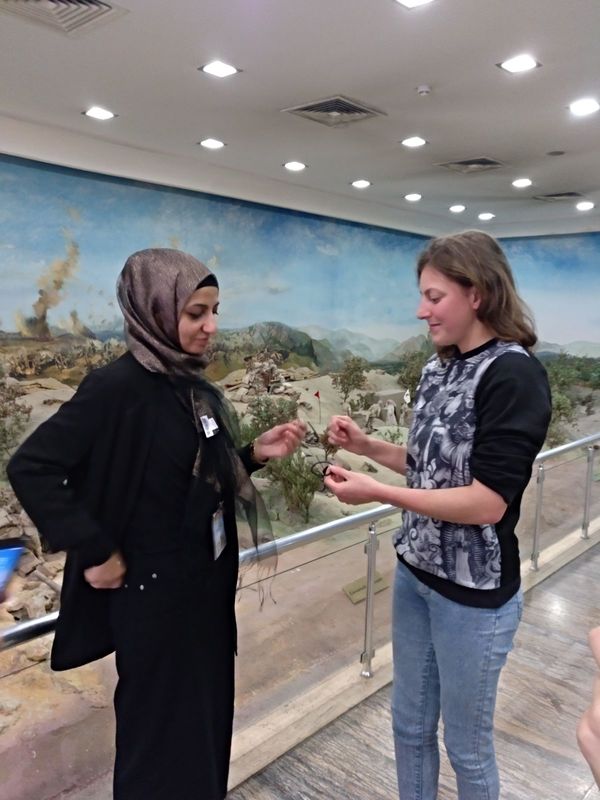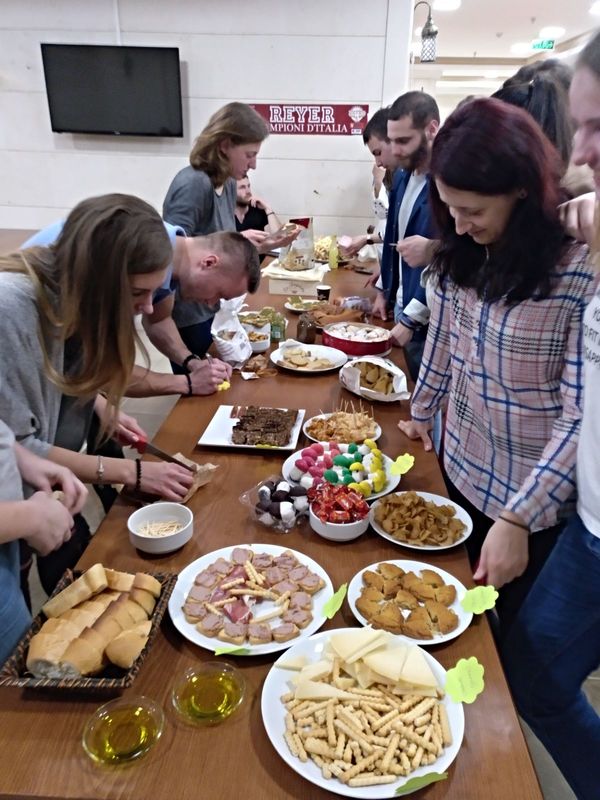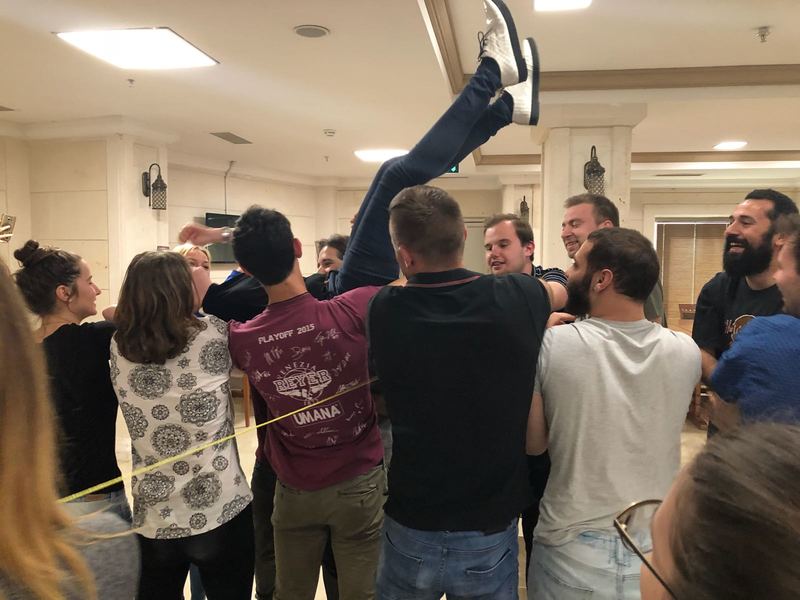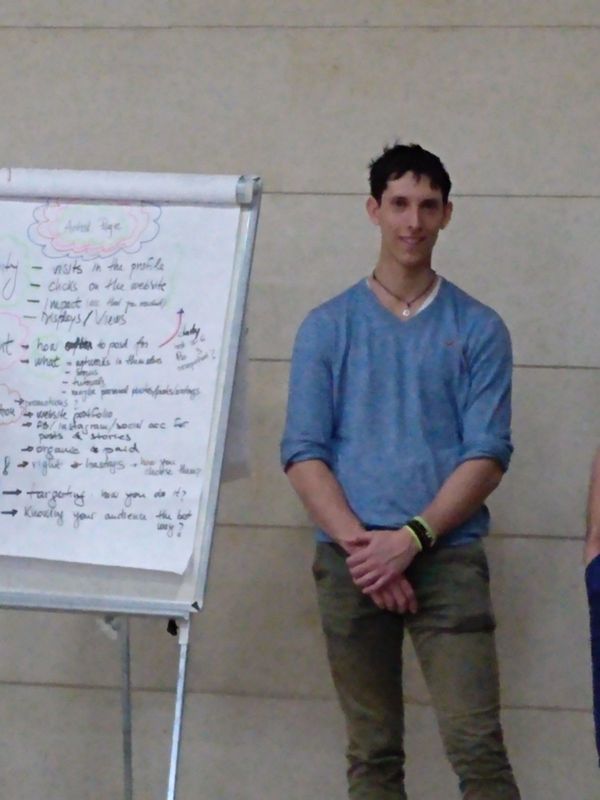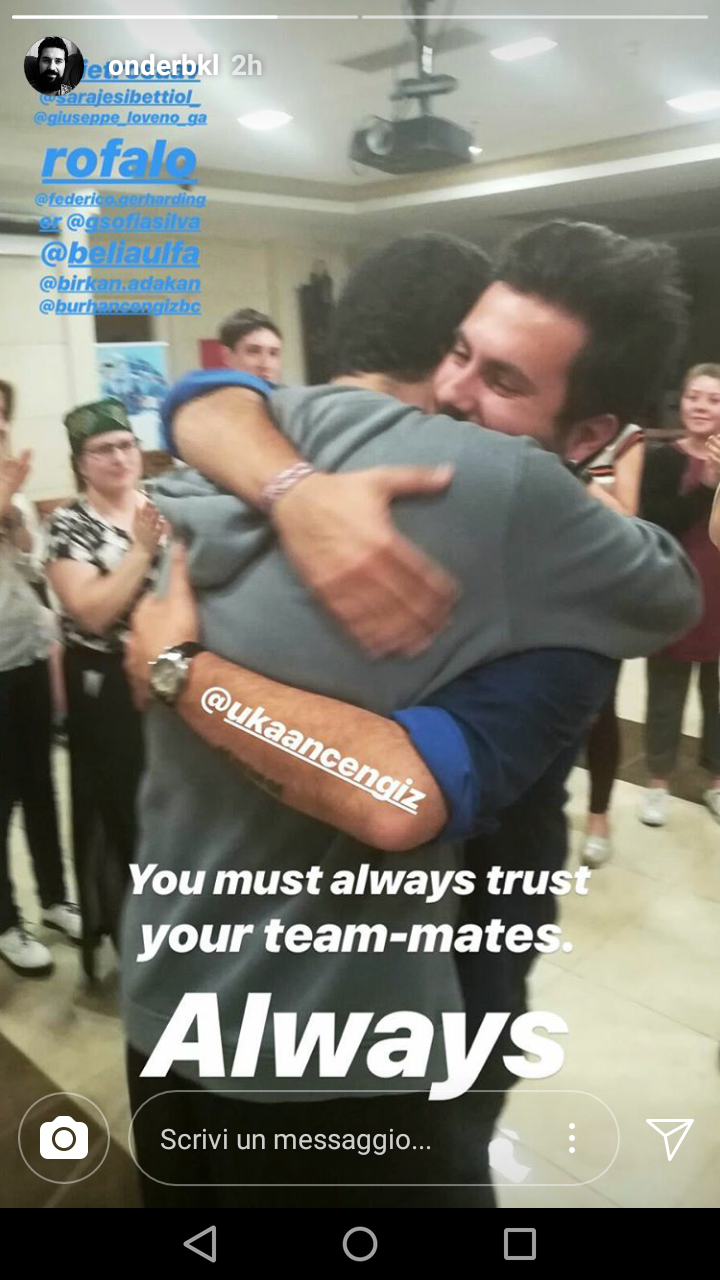YOUTH EXCHANGE
ENTREPRENEURSHIP VS EMPLOYABILITY
London Uk 22-29 Novembre 2018
Imprenditorialità vs Occupabilità
|
Entrepreneurship vs Employability
|
TRAINING COURSE
" SOCIAL INCLUSION THROUGH ARTISTIC TOOLS”
London Uk 15-22 Novembre 2018
|
Il progetto SITAT mirava a sostenere gli operatori giovanili nella loro missione di una migliore integrazione dei giovani migranti attraverso lo sviluppo delle competenze dei giovani
lavoratori utilizzando strumenti artistici innovativi e creativi.
Di conseguenza, l'iniziativa, la creatività e la motivazione sono state migliorate sia nell'obiettivo diretto
- operatori giovanili e nel loro obiettivo finale - i migranti - per un'Europa più inclusiva e coesa. SITAT riunisce 32 persone (27 partecipanti, 3 formatori, 1 formatore junior e 2 staff di supporto) a Londra
da 9 paesi diversi del Programma: U.K, Svezia, Polonia, Paesi Bassi, Lituania, Turchia, Repubblica ceca R. Slovenia, Italia.
I metodi di lavoro sono stati principalmente basati sulla partecipazione attiva e sull'apprendimento dei partecipanti promossi attraverso attività non formali e informali. I principali approcci metodologici si sono basati su: - Pensiero creativo e metodi artistici - Apprendimento esperienziale - Apprendimento cooperativo e tra pari - Attività all'aperto I partecipanti saranno attivamente coinvolti nella preparazione del corso di formazione creando presentazioni interattive insieme alle organizzazioni partner e raccogliendo informazioni sugli argomenti, nonché sulle attività quotidiane della formazione a Londra, portando a bordo la propria esperienza e partecipando attivamente al processo di apprendimento.
|
The project SITAT aimed to support youth workers to their mission of a better integration of young migrants through developing skills of youth
workers by using innovative and creative artistic tools. As a result, initiative, creativity and motivation was enhanced both in the direct target – youth workers and in their final target – migrants – for an Europe more inclusive and cohesive. SITAT gathers 32 people (27 participants, 3 trainers, 1 junior trainer and 2 support staffs) in London from 9 different Program countries: U.K, Sweden, Poland, Netherlands, Lithuania, Turkey, Czech R. Slovenia, Italy. The working methods have been primarily based on the active participation and learning of participants promoted through non-formal and informal activities. The main methodological approaches have been based on: - Creative thinking and art methods - Experiential learning - Cooperative and Peer learning - Outdoor activities Participants will be actively involved in the preparation for the training course by creating interactive presentations together with the partner organizations and gathering information on the topics, as well as in the everyday activities of the training in London, bringing aboard their experience and vigorously participating in the learning process. |
SCARICA TUTTE LE INFO DEL CORSO
TRAINING COURSE
“DESIGN THINKING FOR INNOVATIVE YOUTH WORK”
Manchester Uk 07-14 Novembre 2018
|
Idea del corso di formazione.
Quando si tratta di sviluppare attività / servizi / prodotti che eliminano determinati problemi sociali, molte ONG non conducono ricerche approfondite sui problemi e le esigenze dei loro gruppi target, non fanno prototipi delle soluzioni, non li testano prima dell'implementazione e non coinvolgono i loro gruppi target in il processo di progettazione. Anche quando le persone entrano in campo, possono entrare con le nozioni preconcette su quali siano i bisogni e le soluzioni. Conseguenze della bassa partecipazione, è la non partecipazione attiva e coinvolgimento, non raggiungimento risultati attesi, mancanza di innovazione sociale, scarso (o nullo) impatto e quasi assenza di sostenibilità. Per le ONG l'innovazione porta valore, che a sua volta equivale all'impatto sociale. Per decenni le aziende hanno utilizzato i principi del Human Centered Design (HCD) e più specificamente la metodologia del Design Thinking (DT) per creare soluzioni per molti tipi diversi di sfide basate su reali bisogni e problemi dei loro gruppi target. Mentre il metodo è diventato lentamente noto nel settore non profit statunitense (Bill & Melinda Gates, Rockefeller e Kellogg Foundations, VisionSpring, Acumen, IDE Marie Stopes International, Population Services International (PSI), Mercy Corps e altre organizzazioni), lo stesso non è vero tra ONG europee. Il Design Thinking è una metodologia che fornisce un approccio sistematico centrato sull'uomo, orientato alla soluzione, collaborativo ed efficace per risolvere i problemi e generare idee con impatto. Corso di formazione "Design Thinking per lavoro giovanile innovativo" è finalizzato a far sì che i giovani europei lavorino in modo innovativo e ottengano un maggiore impatto sociale applicando i principi di Human centered design (HCD) nel lavoro giovanile attraverso la costruzione di competenze per giovani lavoratori e introducendo un nuovo metodo innovativo che possono applicare. TC è stato sviluppato per lo sviluppo professionale e professionale di coordinatori di progetti, direttori di programmi / funzionari, operatori giovanili e animatori giovanili. Gli obiettivi del corso di formazione erano: 1. Formare i partecipanti su come applicare la metodologia DT nel loro lavoro, introdurre DT e la sua importanza per il lavoro giovanile di qualità e innovativo approcci. 2. Sviluppare i partecipanti creativo, centrato sull'uomo e pensiero orientato alla soluzione. 3. Promuovere approcci innovativi nel lavoro giovanile per creare innovazioni sociali. 4. Risolvere ulteriori problemi che i giovani affrontano e ottenere un impatto sociale significativo attraverso il lavoro giovanile. 5. Migliorare le competenze professionali dei partecipanti e la qualità del lavoro e delle attività dei partecipanti a beneficio dei giovani.6. Aumentare la motivazione e la soddisfazione nel lavoro quotidiano dei partecipanti. 7. Ispirare i partecipanti a promuovere DT tra i loro colleghi e altre ONG europee. |
Training course Idea
When it comes to developing activities/services/products that will eliminate certain social problems, many NGOs do not conduct deep research on the problems and needs of their target groups, make prototypes of the solutions, test them before implementation and involve their target groups in the design process. Even when people do go into the field, they may enter with preconceived notions of what the needs and solutions are. Consequences of it are low participation, not active participation and involvement, not reaching expected results, lack of social innovation, little (or no) impact and almost no sustainability. For NGOs innovation brings value, which in turn equals social impact. For decades businesses have used principles of Human Centered Design (HCD) and more specifically Design Thinking methodology (DT) to create solutions for many different types of challenges based on real needs and problems of their target groups. While the method slowly has become known within the US nonprofit sector (Bill & Melinda Gates, Rockefeller and Kellogg Foundations, VisionSpring, Acumen, IDE Marie Stopes International, Population Services International (PSI), Mercy Corps and other organisations), the same is not true among European NGOs. Design Thinking is a methodology that provides a human-centered, solution-oriented, collaborative and effective systematic approach to solving problems and to generate ideas with impact. Training course “Design Thinking for innovative youth work” aimed to make European youth work innovative and get bigger social impact through applying Human centered design (HCD) principles in youth work through building youth worker skills and introducing a new innovative method that they can apply. TC was developed for professional and career development of project coordinators, program managers/officers, youth workers and youth leaders. The objectives of the training course were: 1. To train participants on how to apply DT methodology in their work, introduce DT and its importance for quality youth work and innovative approaches. 2. To develop the participants creative, human-centered and solution-oriented thinking. 3. To promote innovative approaches in youth work in order to create social innovations. 4. To resolve more problems young people face and to get significant social impact via youth work. 5. To improve participants’ professional competencies and the quality of participants’ work and activities for the benefit of young people.6. To increase motivation and satisfaction in participants’ daily work. 7. To inspire the participants to promote DT among their colleagues and other European NGOs. |
SCARICA TUTTE LE INFO DEL CORSO
YOUTH EXCHANGE
TIME FOR DIALOGUE
Nysted Denmark DANIMARCA 29 Ottobre 4 Novembre 2018
|
Tipo di attività: Scambio giovani LUOGO E DATA: (29 ottobre-4 novembre) a NYSTED, DANIMARCA.
PARTECIPANTI: 50 giovani. (8 giovani + 2 leader di gruppo di ogni paese) PAESE: Paesi partner da Danimarca, Repubblica Ceca, Italia, Lituania e Turchia. Il nostro progetto Erasmus in Danimarca ci ha resi molto felici e soddisfatti grazie all'enorme quantità di amici che abbiamo realizzato. Abbiamo collaborato con altre persone italiane e soprattutto con persone che provenivano da diversi paesi. Nel progetto abbiamo scoperto molte altre culture e costumi grazie alle diverse attività con il compito di condividere noi stessi e le nostre abitudini parlando con gli altri attraverso la lingua inglese. In questi giorni da una parte c'era una sorta di atmosfera di "festa" in cui condividevamo aspetti divertenti e ci godevamo ogni momento ma, d'altra parte, c'erano anche molti momenti seri in cui dovevamo parlare o pensare a temi importanti (ad esempio immigrazione, razzismo, rifugiati, stereotipi e altre questioni sociali). Le notti interculturali fatte da ciascun paese sono state così interessanti e hanno coinvolto tutti. Questo tipo di progetti è molto importante per le persone europee e specialmente per gli adolescenti che potrebbero avere l'opportunità di viaggiare e imparare qualcosa in questo modo. |
Type of Activity: Youth Exchange PLACE AND DATE: (29 th October- 4 th November) to NYSTED, DENMARK.
PARTICIPANTS: 50 young people. (8 Youth + 2 group leader from each country) COUNTRY: Partner countriesfrom Denmark, Czech Republic, Italy, Lithuania and Turkey. Our Erasmus project in Denmark made us very happy and satisfied because of the huge amount of friends that we have made. We have bonded with other Italian people and especially with people who came from different countries. In the project we have discovered many other cultures and costumes thanks to the different activities with the task of sharing ourselves and our abitudes by talking to the others through English language. In these days on one hand there was a kind of “party” atmosphere in which we shared funny aspects and enjoyed every moment but, on the other hand, there were also many serious moments in which we had to talk or to think about important themes (for example immigration, racism, refugees, stereotypes and other social issues). The intercultural nights made by each country were so interesting and involved everybody. This kind of projects is really important for European people and especially for teenagers that could have the opportunity to travel and learn something in this way. |
SCARICA TUTTE LE INFO DEL PROGETTO
TRAINING COURSE
LET'S START OUR SOCIAL ENTERPRISE
Nelijärve ESTONIA 27 Ottobre - 04 Novembre 2018
|
Gli ultimi anni hanno visto un fiorente interesse per l'imprenditoria sociale in tutta Europa, fortemente guidato dal crescente riconoscimento di un ruolo chiave che le imprese sociali possono svolgere nell'affrontare le sfide sociali e ambientali e promuovere la crescita inclusiva, secondo il rapporto "Una mappa delle imprese sociali e dei loro ecosistemi in Europa ", pubblicato dalla Commissione europea nel 2015. Non è stato probabilmente mai riscontrato un maggiore bisogno di imprese sociali. I problemi che affrontiamo oggi sono complessi e interconnessi. Il mondo stesso è allo stesso tempo globale e più locale di esso è mai stato. Le imprese tradizionali continuano a peggiorare le disuguaglianze, piuttosto che a migliorarle, mentre le imprese sociali sono leader nell'assumere le persone più svantaggiate; nella promozione della diversità negli affari; e nelle crescenti economie locali. In continua pressione a fare di più con meno, sociale le imprese mostrano come le risorse nelle comunità, nelle catene di approvvigionamento, nelle persone e negli investimenti possono essere utilizzate in modo più efficace e per apportare i maggiori cambiamenti.
Il corso di formazione "Coinvolgimento nell'imprenditoria sociale (ISE)" mirava a chiarire e promuovere il concetto di imprenditorialità sociale tra le ONG e i giovani, compresi quelli con meno opportunità, aprire le imprese sociali alla base delle ONG e preparare gli animatori giovanili, i giovani formatori e i leader dei giovani a svolgere corsi di formazione e altre attività educative sull'imprenditoria sociale alle ONG e ai giovani, compresi quelli con minori opportunità nelle loro paesi di origine e a livello internazionale. Gli obiettivi del corso di formazione erano: 1) Far familiarizzare i partecipanti con il concetto di imprenditoria sociale e principale competenze rilevanti per l'imprenditoria sociale. 2) Fornire ai partecipanti l'opportunità di scambiare esperienze e competenze nel campi di imprenditoria sociale. 3) Sviluppare le capacità e le competenze imprenditoriali essenziali degli animatori giovanili istruttori e animatori giovanili. 4) Fornire ai partecipanti gli strumenti e i metodi su come sviluppare l'idea di un sociale impresa, aprirlo ed eseguirlo. 5) Fornire agli operatori giovanili, ai formatori giovanili e ai giovani leader gli strumenti e i metodi per corsi di formazione |
Recent years have seen a burgeoning interest in social entrepreneurship across Europe, strongly driven by a growing recognition of a key role social enterprises can play in tackling societal and environmental challenges and fostering inclusive growth, according to the report “A map of social enterprises and their eco-systems in Europe”, published by the European Commission in 2015. There has arguably never been a greater need for social enterprises.
he problems we face today are complex and inter-connected. The world itself is at once global and more local than it has ever been. Traditional business still worsens inequality, rather than improving it, while social enterprises are leading in employing the most disadvantaged; in fostering diversity in business; and in growing local economies. In continuing pressure to do more with less, social enterprises show how the resources in communities, in supply chains, in people and in investment can be used most effectively and to make the greatest change. The Training course “Involvement into social entrepreneurship (ISE)” aimed to clarify and promote the concept of social entrepreneurship among NGOs and young people including those with fewer opportunities, to open social enterprises on NGOs’ base and to prepare youth workers, youth trainers and youth leaders to deliver trainings and other educational activities on social entrepreneurship to NGOs and young people including those with fewer opportunities in their home countries and internationally. The objectives of the training course were: 1) To get participants familiar with the concept of social entrepreneurship and the main competences relevant for social entrepreneurship. 2) To provide participants with the opportunity to exchange experience and expertise in the fields of social entrepreneurship. 3) To develop the essential entrepreneurial skills and competencies at youth workers, youth trainers and youth leaders. 4) To provide participants with the tools and methods on how to develop the idea of a social enterprise, open and run it. 5) To equip youth workers, youth trainers and youth leaders with the tools and methods for trainings |
SCARICA TUTTE LE INFO SU QUESTO PROGETTO
YOUTH EXCHANGE
BOOSTING RURAL LIFE WITH ART
Nelijärve ESTONIA 26 Ottobre - 04 Novembre 2018
|
"Boosting Rural Life With Art è stato un progetto Erasmus + Key Action 1 - Scambio giovani, con l'obiettivo di sensibilizzare l'opinione pubblica ai giovani rurali al fine di raggiungere le opportunità europee e accrescere le capacità dei giovani attraverso opere d'arte, creare spazi per un dialogo aperto, comprensione interculturale, rispetto reciproco e accettazione della diversità tra i giovani nei nostri paesi. Il progetto includerà gruppi di 4 partecipanti più un leader di gruppo di 7 paesi partner. Gli obiettivi del progetto erano: -Assicurando che i giovani e le persone locali partecipanti siano informati sulle opportunità europee e offrano opportunità ai giovani che vivono in queste regioni di sfruttare le opportunità dei giovani; - Essere in grado di sviluppare nuovi metodi che consentano ai giovani che vivono nelle aree rurali di accedere a informazioni importanti che possono cambiare il loro futuro; -Migliorare le competenze dei giovani che vivono nelle aree rurali sulla base dell'arte e della cultura e contribuire a diventare cittadini attivi; - Essere in grado di fornire un cambiamento sociale positivo nelle aree rurali con attività artistiche e culturali - Incoraggiare i giovani che vivono nelle aree rurali ad avere informazioni sulla natura dei progetti giovanili e ad intraprendere nuovi progetti; - Creare una piattaforma in cui i giovani possano sviluppare e dimostrare le loro capacità artistiche e la loro capacità di esprimersi; - Incoraggiare i giovani che vivono nelle zone rurali a esplorare l'esperienza delle ONG e a produrre nuovi progetti acquisendo esperienza di progetto;
-Introdurre la cultura del paese e assicurare l'introduzione di culture diverse; - Imparare ad apprezzare e comprendere le differenze, le somiglianze e il punto di vista di altre persone e considerare le relazioni interetniche come un guadagno europeo attraverso attività comuni - Migliorare la fiducia in se stessi e le capacità comunicative dei giovani per una migliore interazione con gli altri attraverso la comprensione e la pratica della comunicazione non verbale all'interno delle attività - Sviluppare abilità artistiche, creatività dei giovani utilizzando diverse tecniche in breve tempo - Migliorare le capacità personali di interagire e costruire ponti di fiducia lavorando in team con persone di cultura e tradizioni diverse, attraverso diversi metodi - Rafforzare le relazioni tra i partecipanti, scoprire che, al di là delle nostre differenze, condividiamo un'umanità comune; creare un atteggiamento positivo nei confronti dei valori europei. Usando metodi di educazione non formale offriremo ai partecipanti un'ampia varietà di workshop interattivi, presentazioni e piattaforme di discussione che comprendono fotografia, video, musica, produzione teatrale. Condivideremo le informazioni rivolte alle nostre comunità locali e ai cittadini europei ingenerali, sensibilizzando sull'inclusione dei giovani che vivono nelle aree rurali nei progetti Erasmus +. Come risultato del nostro progetto abbiamo ottenuto che i partecipanti utilizzeranno le nuove competenze e competenze per aumentare la loro sensibilità interculturale, diventare più tolleranti e rispettosi verso le altre culture Europee e diventare più attivi nelle loro comunità e organizzazioni. I metodi di lavoro includevano: - Discussione in piccoli gruppi - presentazioni di gruppo - Presentazioni individuali -Digital Skills - Metodi teatrali - Energizzanti - Attività rompighiaccio - Attività all'aperto Attività di team-building, - Scambio di esperienze, - Attività culturali, - Abilità nei social media - Valutazione continua |
"Boosting Rural Life With Art " is the Erasmus+ Key Action 1 Project - Youth Exchange, aiming to raise awareness on empowerment of rural youth in order to reach the European opportunities and to increase capacities of youth through art Works, create space for open dialogue, inter- cultural understanding, mutual respect and acceptance of diversity between young people in our countries.
The Project will include groups of 4 participants plus one group leader from 7 partner countries. Project objectives were: -Ensuring that participating young and local people are informed about European opportunities and providing opportunities for young people living in these regions to take advantage of youth opportunities; - Being able to develop new methods that will enable young people living in rural areas to access to important information that can change their future; -Improving the skills of young people living in rural areas on the basis of art and culture and contribute to becoming active citizens; -Being able to provide social change positively in rural areas with art and cultural activities;- Encouraging young people living in rural areas to have information about the nature of the youth projects and to undertake new projects; - Creating a platform where young people can develop and demonstrate their artistic skills and their ability to express themselves; - Encouraging young people living in rural areas to explore the NGO experience and to produce new projects by gaining project experience; -Introducing the culture of the country and ensure introducing different cultures; - Learning to appreciate and understand differences, similarities and other people’s point of view and to consider inter-ethnic relations as European gain by common activities - Improving self-confidence and communication skills of youth for a better interaction with others through understanding and practicing the non-verbal communication within activities - Developing artistic skills, creativity of youth by using different technics in short time - Improving personal abilities of interacting and building bridges of trust by working in a team with people of different culture and traditions, through different methods - Strengthening relationships between participants, discover that, beyond our differences, we share a common humanity; create a positive attitude towards European values. Using non-formal education methods we will offer participants wide variety of interactiveworkshops, presentations and discussion platforms comprising photograpy, video, music, theatreproduction. We shared information targeted at our local communities and European citizens ingeneral, raising awareness on inclusion of young people who live in rural areas into Erasmus+projects. As an outcome of our project we expect that participants will use the new skills andcompetences to increase their intercultural sensitivity, become more tolerant and respectfultoward other Europan cultures and become more active in their communities and organizations. The working methods included: - Small group discussion - Group presentations - Individual presentations -Digital Skills - Theatre methods - Energizers - Ice-breaking activities - Outdoor activities - Team-building activities, - Exchange of experiences, - Cultural activities, - Social media skills - On-going evaluation |
SCARICA TUTTE LE INFO SU QUESTO PROGETTO
YOUTH EXCHANGE
WAY OF MIGRATION
Norvegia 15 -24 ottobre 2018
|
La modalità di gestione del progetto, che si è svolta dal 15 al 24 ottobre, rispetta il formato Erasmus + fornendo ai partecipanti una serie di attività di educazione non formale al fine di ampliare le loro opinioni. In particolare, le attività dei primi due giorni sono state pensate allo scopo di creare collegamenti tra i partecipanti. Le attività di team building sono davvero utili per questo obiettivo e i partecipanti hanno avuto l'occasione di presentarsi in piccoli gruppi che dovevano svolgere i compiti assegnati dal formatore (la famosa missione impossibile, 20 compiti da fare in 60 minuti, è stata pienamente seguita) . Più partecipanti hanno raggiunto il cuore del progetto. La divisione in gruppi nazionali ha aiutato a raccogliere informazioni ea diffonderla a tutti i partecipanti. Abbiamo fatto una presentazione obiettiva dei nostri paesi cercando di rispondere ad alcune domande sull'immigrazione e sull'economia, come, ad esempio, gli effetti della legislazione nazionale e del contesto storico. Abbiamo finito per fornire dati e statistiche reali al fine di essere il più imparziali possibile. Un'altra attività interessante e profondamente emotiva è stata interamente inventata dal nostro trainer che ha introdotto il delicato tema della guerra dandoci la sua personale esperienza sulla guerra nei balcani, ma il vero cuore del nostro progetto è rappresentato dal video che abbiamo realizzato che includeva tutti partecipanti. Abbiamo avuto idee diverse e abbiamo sperimentato il processo decisionale poiché il tema del video era interamente a nostro carico. Abbiamo lavorato al video tutto il giorno e tutte le persone che erano scettiche riguardo al risultato sono state convinte dal risultato finale che si è dimostrato essere la prova tangibile di ciò che le persone provenienti da paesi e background diversi possono fare in così poco tempo . Recital, ruoli di gioco e schizzi sono stati eseguiti tutto il tempo rimanente della settimana. È stata un'esperienza straordinaria piena di attività e momenti di gioia che hanno reso i partecipanti quasi in lacrime una volta che il progetto fosse finito.
I gruppi target che i progetti Erasmus + cercano di raggiungere sono giovani, studenti, volontari e animatori giovanili. Abbiamo svolto molte attività che hanno coinvolto tutti i partecipanti per diversi motivi. Anche se eravamo tutte persone molto diverse, con background e storie molto diversi, siamo stati riuniti da queste attività progettate per i nostri gruppi target. Lo scopo principale del corso di formazione è preparare gli animatori giovanili per poter lavorare nelle ONG e con tutti i tipi di persone. Attraverso l'educazione non formale abbiamo imparato molto e una volta tornati a casa non abbiamo potuto fare a meno di condividere la nostra esperienza all'interno e all'esterno delle nostre organizzazioni. Eravamo ansiosi di raccontare le nostre storie, mostrare ciò che abbiamo imparato e fatto e condividere la straordinaria opportunità che abbiamo avuto. La nostra organizzazione punta sempre a raggiungere più giovani e attraverso il partecipante del progetto lo stiamo facendo a poco a poco. |
The project way of migration, which took place from the 15th up to the 24th of October, respects the Erasmus + format providing participants with a series of non-formal education activities in order to broaden their views. In particular activities of the first two days have been thought on the purpose of creating links between participants. Team building activities are really useful for that goal and participants had the occasion to present themselves in little groups which were supposed to accomplish the tasks given by the trainer (the famous mission impossible, 20 tasks to do in 60 minutes, has been fully succeeded). More over participants got to the very heart of the project. The division in national groups helped to gather information and to spread it to all participants. We made an objective presentation of our countries trying to answer some questions about immigration and economy, as, for instance, the effects of national legislation and the historical background. We ended up providing real data and statistics in order to be as impartial as possible. Another interesting and deeply emotional activity was entirely made up by our trainer who introduced the delicate theme of war giving us his personal experience about the war in the balcans, but the very core of our project is represented by the video that we made which included all participants. We came up with different ideas and we experienced the decision making process since the theme of the video was entirely up to us. We worked on the video all day long and all the people who were skeptical about the result have been convinced by the final outcome which proved to be the tangible proof of what people coming from different countries and backgrounds can do in such a small amount of time. Recitals, roles of play and sketches have been performed all the remaining time in the week. It was an amazing experience full of activities and joyful moments which made participants almost tearful once the project was over.
The target groups that the Erasmus+ projects try to reach are young people, students, volunteers and youth workers. We carried out a lot of activities which involved all of the participants for different reasons. Even if we were all very different people, with very different backgrounds and stories we were brought together by these activities designed for our target groups. The main purpose of the training course is to prepare youth workers to be able to work in NGO’s and with all kind of people. Through non formal education we learnt a lot and once we went back home we couldn’t help but share our experience inside and outside of our organizations. We were eager to tell our stories, to show what we learned and did and to share the amazing opportunity we’ve had. Our organization is always aiming to reach more young people and through the participant of the project we’re doing that little by little. |
SCARICA TUTTE LE INFO DI QUESTO PROGETTO
TRAINING COURSE
ALL TOGETHER
ANKARA TURCHIA 09-15 OTTOBRE 2018
Lo scopo del progetto “all together” era quello di affrontare l’argomento del razzismo, in tutte le sue manifestazioni, attraverso la realizzazione di un video creato grazie a varie interviste alle persone locali. Al progetto hanno partecipato 29 persone in totale, d’età compresa tra i 19 e 46 anni, provenienti da Italia, Lettonia, Lituania, Repubblica Ceca, Bulgaria, Romania, Regno unito, Olanda e Turchia. I primi giorni sono stati dedicati alla conoscenza fra i vari partecipanti e attività di team building. Ogni nazione ha inoltre presentato esempi di razzismo che si verificano nel suo paese. Durante la seconda parte del progetto, i ragazzi sono stati divisi in vari gruppi con lo scopo di andare in giro per Ankara per intervistare la popolazione riguardo alla loro idea di razzismo, anche attraverso giochi. Gli ultimi giorni sono serviti per il montaggio e la creazione del video riassuntivo di tutta l’esperienza. È stato molto interessante vedere come le differenze di nazionalità, di religione o di pensiero, non solo non abbiano creato barriere o attriti, ma siano state un pretesto per conoscere qualcosa di nuovo e interessante. Tutti i ragazzi sono tornati a casa con un bagaglio di esperienze uniche e con tanta felicità. |
the aim of the "all together" project was to tackle the subject of racism, in all its manifestations, through the creation of a video created thanks to various interviews with local people. The project was attended by 29 people in total, aged between 19 and 46, from Italy, Latvia, Lithuania, Czech Republic, Bulgaria, Romania, United Kingdom, Holland and Turkey. The first days were dedicated to knowledge among the various participants and team building activities. Each nation has also presented examples of racism that occur in his country. During the second part of the project, the boys were divided into various groups with the aim of going around Ankara to interview the population about their idea of racism, even through games. The last days have been useful for the editing and the creation of the summary video of the whole experience. It was very interesting to see how the differences in nationality, religion or thought, not only did not create barriers or frictions, but were an excuse to know something new and interesting. All the boys returned home with a wealth of unique experiences and lots of happiness. |
YOUTH EXCHANGE
“NEW JOB, NEW LOVE, ENTREPRENEURSHIP”
KONYA,TURCHIA 9-18 APRILE 2018
|
Al progetto, hanno partecipato:
Lituania (4 Participants + 1 Leader), Repubblica Ceca (4 Participants + 1 Leader), Slovenia (4 Participants + 1 Leader), Italia (4 Participants + 1 Leader), Spagna (4 Participants + 1 Leader), Romania (4 Participants + 1 Leader) e Turchia. Esso mirava a creare nuove opportunità e nuove idee riguardo le imprese sociali. Sono stati perciò affrontati i temi, descrivendo ed evidenziando le differenze di necessità o burocratiche fra le varie nazioni partecipanti. Molto tempo è stato inoltre dedicato alla presentazione dei vari progetti compresi nell’ambito di Erasmus +, cercando anche di creare nuove idee per futuri e possibili youth Exchange. Molto interessante e apprezzata è stata la serata interculturale, dove ogni nazione ha presentato cibi,bevande e danze o usanze tipiche del proprio paese, attraverso una chiave molto divertente e stimolante. Una giornata era completamente libera, e una parte del gruppo l’ha sfruttata per passare una stupenda giornata visitando la regione della Capadoccia, molto particolare e suggestiva. I metodi di apprendimento sono sempre stati informali, stimolando l’attenzione e la partecipazione intervallando gioco e lavoro. L’esperienza è stata molto apprezzata soprattutto per il gruppo che è stato creato, creando un atmosfera molto emozionante alla fine del progetto. |
To the project, they participated:
Lithuania (4 Participants + 1 Leader), Czech Republic (4 Participants + 1 Leader), Slovenia (4 Participants + 1 Leader), Italy (4 Participants + 1 Leader), Spain (4 Participants + 1 Leader), Romania (4 Participants + 1 Leader) and Turkey. It aimed to create new opportunities and new ideas about social enterprises. The issues were therefore addressed, describing and highlighting the differences in need or bureaucracy among the various participating nations. Much time was also dedicated to the presentation of the various projects included in Erasmus +, also trying to create new ideas for future and possible youth exchanges. Very interesting and appreciated was the intercultural evening, where each nation presented food, drinks and dances or customs typical of their country, through a very funny and stimulating key. One day was completely free, and a part of the group used it to spend a wonderful day visiting the Capadoccia region, very special and evocative. The learning methods have always been informal, stimulating attention and participation by alternating between play and work. The experience was much appreciated especially for the group that was created, creating a very exciting atmosphere at the end of the project. |
|

